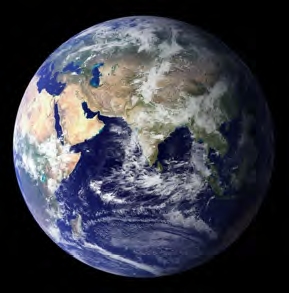 Eco News Archive
Eco News Archive
Articles and letters about climate change
Click on the links in the right hand menu bar to go to our other Eco Church pages:
Click here to return to the current News and Views page.
| Eco News October 2023 - Stand by for the Politics | | Climate Crisis has well and truly entered the political arena! Whether it is the revision of the electric cars deadline, the postponement of the end of gas boiler sales, the opening of a coal mine in Cumbria or the granting of licences to drill for oil..
More ...
| |
| 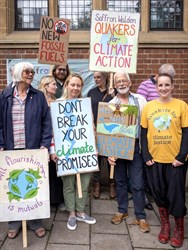 |
|
|
Fire and Ice – September 2023
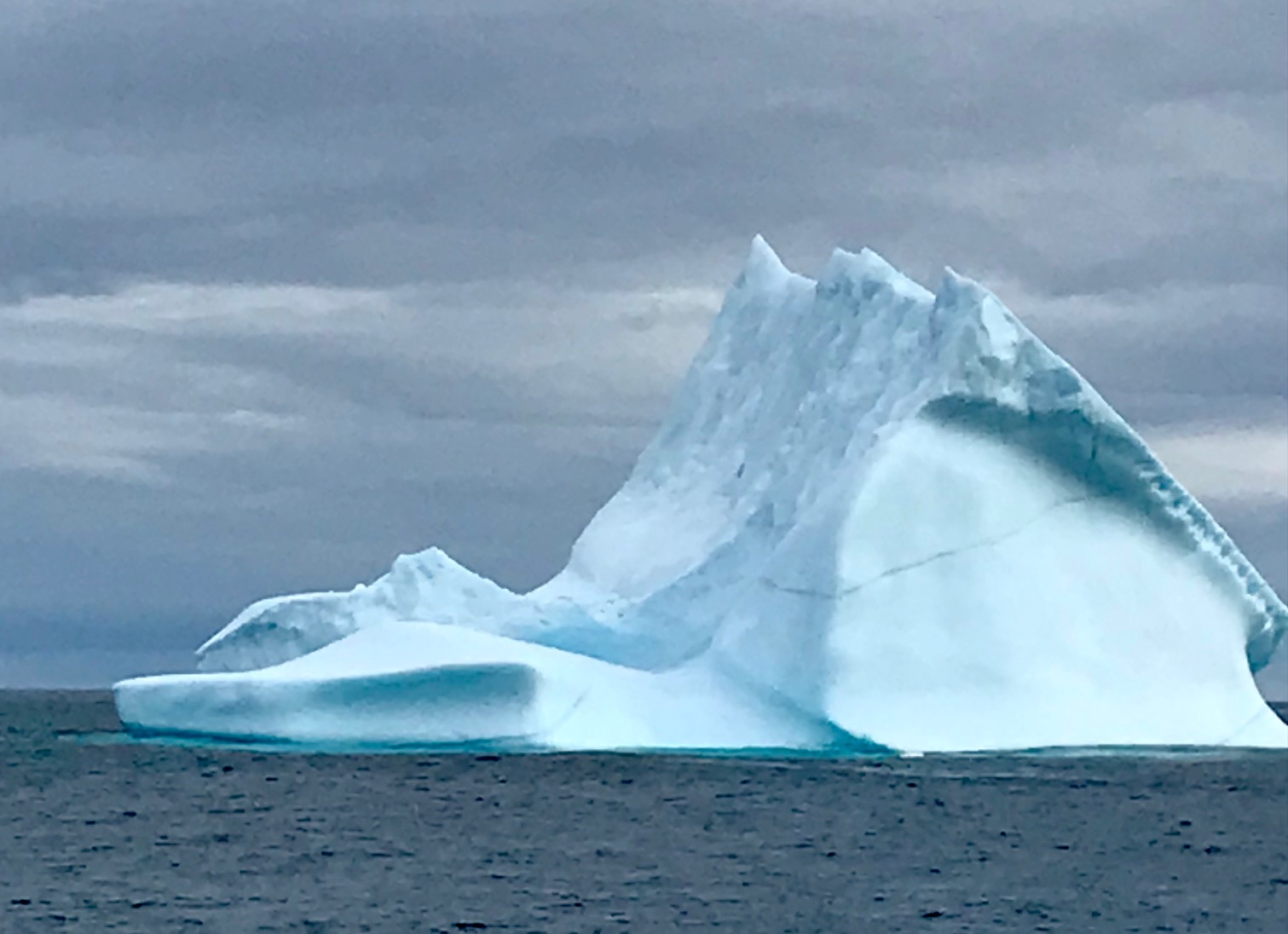 This summer I saw an amazing combination of erupting volcanoes, icebergs and whales while the world continued to suffer the devastating effects of the climate crisis: wildfires which torched more than 500 sq km of Greece; the evacuation of Rhodes; uncounted deaths in Hawaii; Arizona notching up a record-breaking 31 consecutive days at 43C or more while despite the rain in England and floods in Norway, and July became the hottest month ever recorded in the modern era, adding to the 60,000 heat related deaths recorded in Europe last year.
This summer I saw an amazing combination of erupting volcanoes, icebergs and whales while the world continued to suffer the devastating effects of the climate crisis: wildfires which torched more than 500 sq km of Greece; the evacuation of Rhodes; uncounted deaths in Hawaii; Arizona notching up a record-breaking 31 consecutive days at 43C or more while despite the rain in England and floods in Norway, and July became the hottest month ever recorded in the modern era, adding to the 60,000 heat related deaths recorded in Europe last year.
Apart from the largely benign effects of volcanic eruptions, these events are all connected, including the melting of the polar ice sheets.
And yet, as I witnessed when I made landfall in Greenland, humanity is blessed with the most exquisitely beautiful planet. A beauty which inspired this poem:
Tasiilaq
8th August 2023
Tasiilaq let us in.
Cold sun on our faces
A spotlight skittering across silken seas,
We dropped our sails.
Clouds stretched grey and mauve;
Mountains in soft layers of mist
Split and cracked the horizon.
A bubble beneath our bows!
Then more aligned
Until massive, black, timeless
The humpback rose, blew steamy jets,
Introduced its dorsal fin, curiosity satisfied,
Raised its languorous fluke,
And plunged.
Against the sky’s scorching rim
The sun’s last rays splintered mountain tops
While icebergs, crisp against deepening layers of purple,
Imperious
Doomed
Carried their centuries of snow
Out to sea.
The melting of the polar ice sheets and Permafrost pose deep and massive threats. While we were moored in Port Ellen Bay, Islay, I met Dr Nigel Jollands, the founder and scientist on the yacht Novara, which was moored alongside us. He leads the Novara One World Project, (www.Novara.World) encouraging climate resilience amongst communities in high latitudes. He told me that a massive 30cms of sea level rise by 2050 is hard-baked into our models of the climate crisis. The impact of this on world populations is hard to envisage.
But I also learned something wonderful about whales. A blue whale is worth far more alive than dead. It is a massive carbon sink of 7-9 tonnes of carbon which equates to 33 tonnes of CO2 kept out of the atmosphere. Apparently we can value each blue whale at at least $3 million at today’s carbon trading prices. Far more than the value of its meat! Its poo is also of immense value on its slow journey to the ocean floor, feeding vast numbers phytoplankton, which globally sequester 37 gigatonnes of carbon. Ref Ralph Chami
These figures are dwarfed by the value of sea grass, which sequesters a total of $2.3 trillion of carbon each year. All we need to do is put a value on living Nature, instead of only valuing nature when is dead: felled, slaughtered or cleared.
By the way, elephants also incorporate $2.6 million worth of carbon each, while their poo too stimulates the carbon sequestration capacity of the forest. This offers a basis of a solution to African farmers who are devastated when elephants rampage over their crops.
In a few days later I set sail to Greenland again on a northerly course this time, aiming to cross into the Arctic Circle and experience my 7th ocean under sail. We were greeted by an awesome congregation of icebergs at the entrance to Scoresby Sund - stunning in their size and purity. In our two days in the remote community of Ittoqqutoormiitt, we learned how the snows are coming weeks later, melting weeks earlier and where houses would once commonly have been buried up to their roofs, by Innuit standards there has been ‘no snow’ since 2010.
This massively affects their livelihoods but has a direct affect on us thousands of miles away to the south because it profoundly affects the behaviour the Jet Stream. Less snow here is connected to wet summers in England and scorching summers in the Mediterranean. We all share one tiny, delicate, interconnected planet. None of us is an island.
Edward Gildea, Eco Team Leader
Eco Progress - July 2023

Wild flowers in our churchyard
|
I hope you have enjoyed walking through our churchyard this year, observing the changing displays of snowdrops, wild daffodils, primroses, stars of Bethlehem, camassia, poppies and other wild flowers. They have minds of their own and the strength of the grasses in some areas is a challenge, but as they proliferate, so do the insects and pollinators, the birds and small mammals, and within the soil, the trillions of invertebrates and micro-organisms on which our food chains all depend.
The beauty of our wild flowers is really just a by-product of the more significant things that are happening to the ecology!
Eco church has been operating in St Mary’s for four years now, as part of the Church of England’s goal to reach carbon zero by 2030. Reducing the energy consumption of our cathedral-sized church is still an outstanding challenge, but the PCC has embarked on the exciting process of designing and installing a new, more beautiful and energy efficient lighting system, which will be a significant step forward.
The most important challenge of Eco church, however, is supporting parishioners in reducing their own carbon footprints.
Huge thanks to all of you who took part in our recent survey! 58 of you took part, which was most encouraging, and the results were also very positive. The table below captures many of the findings but headline results include that 66% of respondents always or frequently cut down on their meat consumption; 78% bought local food in season all or most of the time; 56% considered the environment when buying clothes and a massive 90% mended, repaired or recycled their clothing!
Other parts of the survey showed that 73% avoided flying where possible, 83% avoided using their tumble driers and 86% had read articles about the environment and watched TV programmes about it.
There is clearly reticence about writing to our MP, protesting or going on marches. My personal view is that our concern for the precious and delicate environment that God has given us should totally transcend party politics. It is of such universal importance. But as we live in society with each other, we depend on politicians to take actionsre on our behalf.
Meanwhile it is heartening to think that so many of our congregation are doing what they can, showing their own leadership and demonstrating more sustainable ways of living in Saffron Walden. Thank you.
Eco Survey results: percentages refer to those who clicked on the ‘Always’ or ‘Frequently’ options. You can see the full results here.
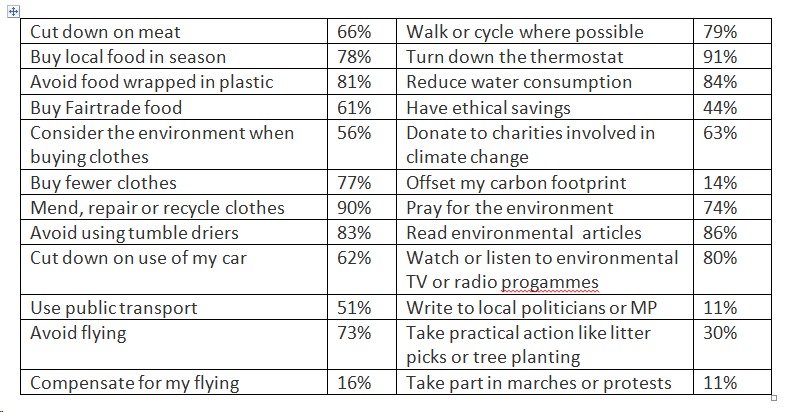
Edward Gildea, Eco Team Leader
The Precautionary Principle or Exceptionalism and the Bridge - June 2023
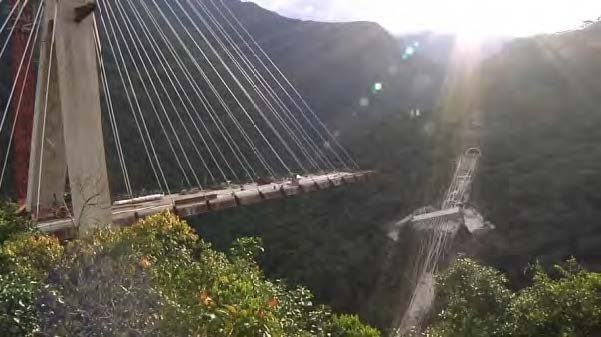 In May the World Meteorological Organisation forecast that global temperatures will most probably exceed the 1.5°C limit of warming set by the Paris Agreement within the next five years. This was supposed to be the decade in which we turned things around, but we are still accelerating in the wrong direction. Years of international scientific research and political debate went into setting that safety guardrail, beyond which the chance of uncontrollable environmental catastrophe increases enormously.
In May the World Meteorological Organisation forecast that global temperatures will most probably exceed the 1.5°C limit of warming set by the Paris Agreement within the next five years. This was supposed to be the decade in which we turned things around, but we are still accelerating in the wrong direction. Years of international scientific research and political debate went into setting that safety guardrail, beyond which the chance of uncontrollable environmental catastrophe increases enormously.
It is easy to pick holes in any of the arguments and strategies around our climate and environmental crises. There are no silver bullets. Almost everything has a carbon footprint attached to it; it is just a case of finding ways to reduce those emissions as quickly as possible. Of course nothing is certain about the future. Nothing can be proved about it. We can’t grab evidence from the future. We have to depend on what thousands of scientists are attempting to predict and model.
So imagine this: You are driving a car with your partner and children or grandchildren securely seat-belted into your air-bag protected car, when you are stopped at a road block by the bridge you need to cross. The police officer advises you that there is a 1% chance of the bridge collapsing into the ravine below if you cross it. The alternative is a 100 mile detour to the next bridge. This would mean that you would miss the special family occasion you had planned for the day. Would you cross the bridge? You’ve got a 99% chance of surviving and enjoying your day out…. I wouldn’t, but maybe you would put your foot hard down on the gas and risk it?
Now imagine the same road-block and the officer saying that the bridge has a more than 50% chance of collapsing as you cross. I can’t imagine any sane
person taking that risk, yet we are putting our children at far greater danger by our current lifestyles.
Some people would solve the problem by getting into their private jet. Others would say that their car is so small and light it wouldn’t bring the bridge down. These two forms of exceptionalism are serious barriers to action. Some celebrities, politicians and entrepreneurs regard themselves as exceptional because they are so wealthy and important. They feel entitled to their private jets and frequent holidays; it is for the rest of the world to make the difference because their disproportionate impact is still a small percentage of the whole.
Others are exceptional out of humility rather than arrogance. ‘I am not wealthy, I only fly occasionally and changing my lifestyle won’t make any difference to the planet.’ And they are right. All the tiny things I do won’t make a difference either. But I don’t see that as an excuse for doing nothing. We all need to tread more lightly on the planet, with no exceptions!
So even if you have not been persuaded by my articles in the Parish News over the last 4 years, do give a thought to that bridge and the precautionary principle!
Edward Gildea, Eco Team Leader
Ethical Consumer
 FREE ACCESS TO THEIR WEBSITE (30 places left on our membership) and access to digital editions of Ethical Consumer Magazine - Signing in details from the parish office. All the information and inspiration you need to revolutionise the way you SPEND, SAVE and LIVE. Learn how to use your spending power to help change the world for the better. Please speak to Edward Gildea or Alison Trew for further details.
FREE ACCESS TO THEIR WEBSITE (30 places left on our membership) and access to digital editions of Ethical Consumer Magazine - Signing in details from the parish office. All the information and inspiration you need to revolutionise the way you SPEND, SAVE and LIVE. Learn how to use your spending power to help change the world for the better. Please speak to Edward Gildea or Alison Trew for further details.
To sign up please speak to the parish office 01799 506024 or email office@stmaryssaffronwalden.org
ETHICAL CONSUMER is an independent, not-for-profit, multistakeholder, co-operative with open membership.
Let’s Weigh up our Time Scales - May 2023
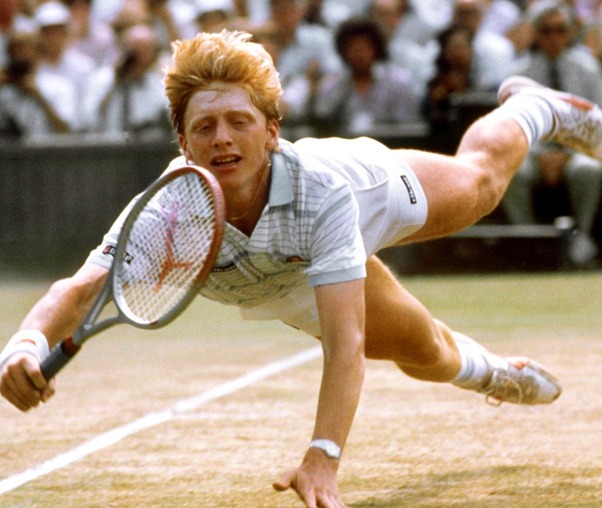
Boris Becker winning Wimbledon 1985
|
The sudden and dramatic changes in the balance of Earth are sometimes attributed to the vast natural cycles of our planet. In order to distinguish them, we need a sense of scale.
If we turn years into inches:
• Man started using fire in the ‘Old Stone Age’ 1.6 million years or roughly 25 miles ago
• The Neolithic Era or New Stone Age, when we became farmers, started just 333 yards ago (12,000 years)
• The Bronze Age started 147 yards ago and the Iron Age 89 yards ago
• Jesus lived about 55 yards ago
• The Industrial Revolution started 7 yards ago
• The Machine Age of internal combustion and electrical engines started just 3.8 yards ago
• The Atomic Age began 2.16 yards ago and
• The Internet Age started a mere 33 inches ago.
This gives us a sense of the astonishing acceleration of our technology following an incredibly long period as cavemen! At school I assumed that the Old and New Stone Ages were roughly equal. They never told me that the whole of human history since the start of the New Stone Age adds up to less than 1% of the Paleolithic era!
More astounding still is the fact that half of all the Green House Gases in the Earth’s atmosphere were put there since Boris Becker won Wimbledon in 1985, just 38 inches ago!
This breakneck acceleration of our fossil-fuelled lifestyles is what places the problem in a different order of magnitude to the natural cycles of the planet, such as the Ice Ages.
• The first Ice Age, the Huronian, was 2.3 billion years; roughly 35,000 miles ago
• The fourth, Late Paleozoic Ice Age, when the continents started to drift, was 360-250 million years ago; roughly 5,000 miles ago
• The most recent, Pleistocene Ice Age started 2.6 million years, approximately 40 miles ago and is notionally still with us.
These cycles of the planet are on a totally different scale to the 38 inches in which we have so radically altered the balance of the planet. As a species we have enjoyed a largely benign and balanced climate. We have learned how to adapt to snow and ice as well as desert. But never has one generation brought about such sudden changes which so profoundly affect the life chances of the following generations.
There are other theories that the accelerated melting of the Antarctic and Greenland ice sheets are due to volcanic activity. There were indeed an amazing 85,000 earthquakes in Antarctica in 2020 due to the activity of the previously dormant Orca Seamount volcano. But while a NASA-led study helped explain why the ice sheet collapsed rapidly in an earlier era of rapid climate change and why it’s so unstable today, the researchers emphasized that the heat source isn't a new or increasing threat to the West Antarctic ice sheet, but rather has been going on over geologic timescales, and therefore represents ‘a background contribution to the melting of the ice sheet’.* The Marie Byrd Land geothermal plume, which melts ice and creates lakes under the ice, was formed 50-110 million years ago, 790 – 1,700 miles ago. Far longer than Boris Becker’s 38 inches!
These vast, natural events in their massive timescales are way beyond man’s control, but we should not use them as excuses to continue our ‘business as usual’ lifestyles. As with everything in life, we should take responsibility for those actions that are within our control, and, if we have faith, pray to God for those that are not.
https://climate.nasa.gov/explore/ask-nasa-climate/2982/fire-and-ice-why-volcanic-activity-is-not-melting-the-polar-ice-sheets/
Edward Gildea, Eco Team Leader
An unthinkable legacy - April 2023
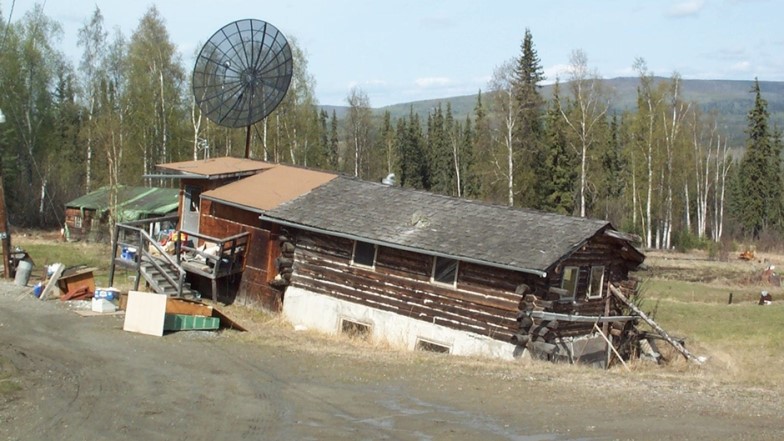
Buildings collapsing as permafrost melts |
“Humanity is on thin ice and the ice is melting fast.” Antonio Guterres, the UN Secretary General, doesn’t mince his words when he speaks to world leaders. You remember his ‘Code Red for Humanity’ in 2021?
His latest warning came as the IPCC (International Panel on Climate Change) published its most recent report in March. It makes for grim reading.
Yet still I hear politicians say glibly that ‘Technology will save us.’ That is the most irresponsible myth! Technology has for years been producing brilliant solutions to the crises we face, and they are getting ever better. But we have lacked the political will to invest enough in them and make the urgent transition from our fossil fuel economies to the new clean solutions.
The massive international fossil fuel companies, which exert powerful pressures on global decision making, have been in the real driving seat.
Let’s take the oceans. The equivalent of 5 Hiroshima bombs’ worth of energy goes into our oceans every minute. 300 bombs every hour. This is heat from the sun which should be bounced back into space but is trapped by our Greenhouse Gases. I felt the heat of the oceans as I sailed around the world and experienced the massive weather events that result from all that energy.
There is no little gizmo we can dangle in the sea to extract all that heat. The only solution is to massively reduce our emissions, get them to zero by 2050 or sooner and then, over the next few centuries, with the sun’s energy bouncing once more back into space, allow the oceans to cool and bring down the frequency and intensity of extreme weather events as they do so.
But while we wait for the world to move away from fossil fuels, we have set some massive positive feedback loops into operation. One is Arctic Ice. As it melts and retreats, it exposes more deep, blue-black ocean. The oceans absorb the heat that was previously reflected by the ice, and so more ice melts, revealing even more ocean… The process is accelerating and I have no idea how it will ever be reversed. There is no technological gizmo for that either!
Another positive feedback loop is Siberian and Canadian permafrost. Ice that has lain under the vast swathes of tundra for millennia but which is now melting. Whole towns that have been built on the solidity of the ice are now buckling and collapsing as the ground turns to mush. The problem is that as it does so, it releases vast quantities of methane. Methane is 80 times more powerful as a greenhouse gas than CO2. It does indeed break down in the atmosphere in about 20 years, turning into CO2, but that is time enough to have heated more tundra, melted more permafrost, released more methane and accelerated the warming process yet again.
It is the stuff of nightmares. The Emissions Gap report estimates that the world will warm by 2.8°C this century if countries keep their promises; if we carry on as we are, the IPCC estimates that we will warm by 3.2°C. Neither of those outcomes is survivable. Our ecosystems will have broken down with repeated droughts, floods, hurricanes, biodiversity loss and harvest failures long before then: within the lifetimes of the children in our nurseries and infant schools. An unthinkable legacy!
Edward Gildea, Eco Team Leader
Minds over Matter - March 2023
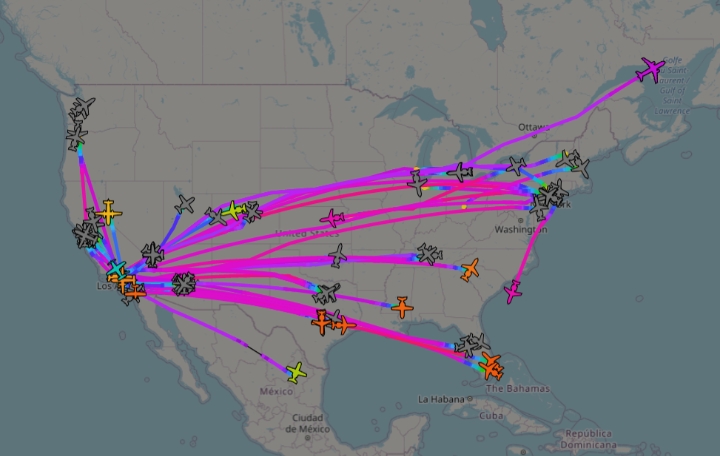 Eco Church has 5 dimensions: Worship, Buildings, Land, Community Engagement and Lifestyles. Very often, concerns about Church Buildings dominate our thinking. Old churches present huge challenges: how can they be insulated? Draught proofed? Heated and lit using clean energy? And how can we possibly afford all those actions?
Eco Church has 5 dimensions: Worship, Buildings, Land, Community Engagement and Lifestyles. Very often, concerns about Church Buildings dominate our thinking. Old churches present huge challenges: how can they be insulated? Draught proofed? Heated and lit using clean energy? And how can we possibly afford all those actions?
The Church of England has set the massive challenge of reaching carbon zero by 2030. It is a noble ambition and we are trying to map out our journey to get there in St Mary’s starting by measuring our existing carbon footprint. But if you ask me, I would argue that it is the least important of the five dimensions.
The greatest dimension of them all is Lifestyle. Changing our personal lifestyles is essential if we are to love our neighbours as ourselves, to care for God’s creation and to give hope to younger and future generations. But in order to change lifestyles we need to change our hearts and minds: the ways we think; our assumptions and perspectives. The challenge humanity faces is enormous and the solution can only start with us, in our heads.
At the moment affluent lifestyles and economies simply do not fit on a single, healthy planet. They only exist on our planet on the basis of escalating exploitation and pollution. The most affluent are the worst. Following the SuperBowl in Los Angeles last month no fewer than 140 private jets took off to fly their millionaires back to New York, Florida, Seattle, Texas and further. Millionaires who use their jets to get to any number of sporting events, concerts or restaurants as their fancy takes them. It is the most gross violation of their duty to God and the rest of humanity.
I don’t imagine that any readers of the Parish News are in their league, but there may be sopme frequent flyers and SUV drivers amongst us and we are still members of the fifth richest nation in the world (albeit with wealth spread increasingly unfairly). Having benefited from 250 years of fossil fuels, we should take the lead.
So your Eco Church team cordially invite you to fill in their Environmental Lifestyle questionnaire. This will enable us to establish a baseline and in future years will enable us to track our progress. It should be fun to complete and I hope that it will make you think about your legacy as you answer the questions. It is very easy, especially if you can do it on your phones or computers, although paper copies are available.
Then get your friends to do it. The more the merrier. Because we don’t just want to change the lifestyles of our congregation alone. It needs to be our whole parish. Our deanery. Our diocese. People of all faiths and none… the whole world!

That is why it is bigger than our buildings!
To complete the questionnaire click on this link https://forms.gle/b9uxFqYLGZSzd1xC6 or this QR code
Edward Gildea, Eco Team Leader
Juries understand the Crisis - February 2023
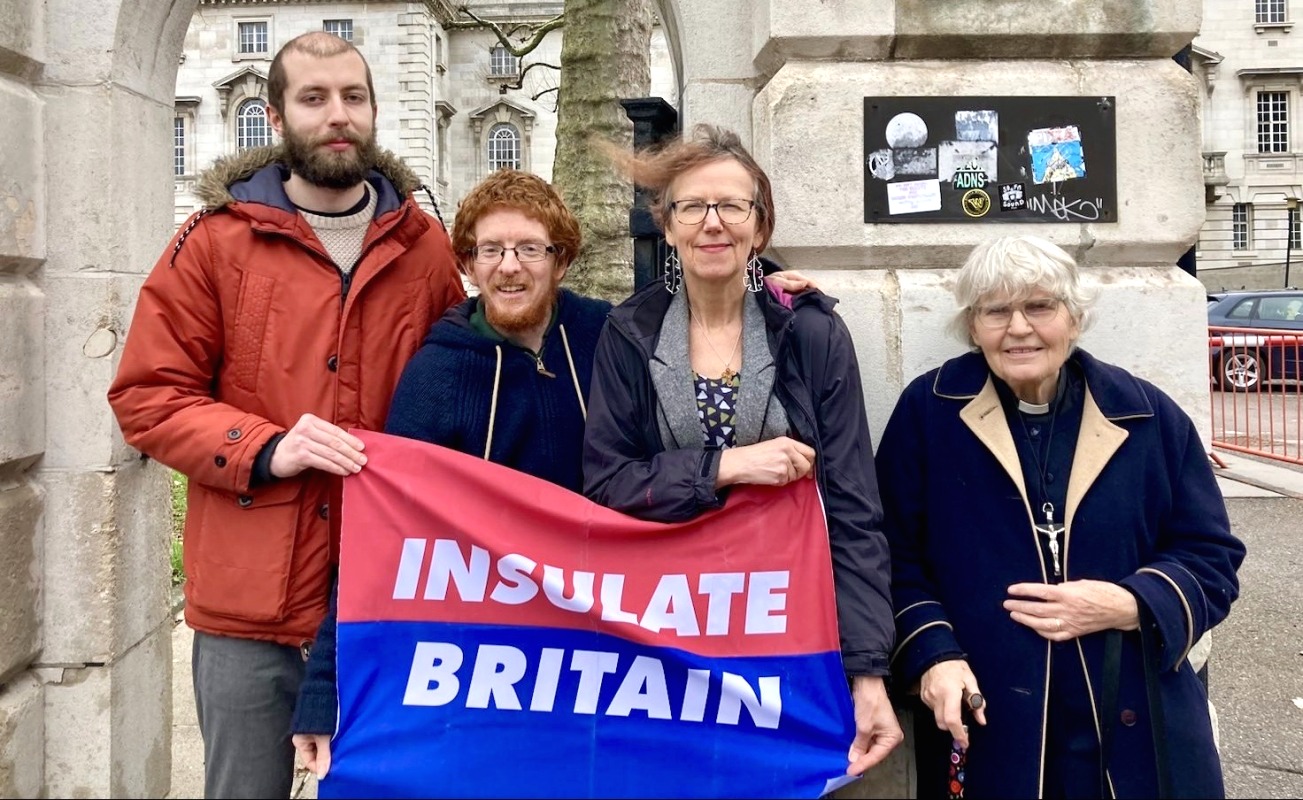 An elderly vicar and the editor of Green Christian were amongst the Insulate Britain protesters who were found not guilty of causing a public nuisance in January 2023. The crown court jury returned unanimous ‘not guilty’ verdicts despite having been instructed by the judge to find the protesters guilty.
An elderly vicar and the editor of Green Christian were amongst the Insulate Britain protesters who were found not guilty of causing a public nuisance in January 2023. The crown court jury returned unanimous ‘not guilty’ verdicts despite having been instructed by the judge to find the protesters guilty.
For over a year before the war in Ukraine and the massive increase in gas prices, Insulate Britain had been calling for the UK government to fund the insulation of all social housing by 2025 and the retrofitting of all homes by 2030. They highlight the fact that, after two failed insulation initiatives, Britain has some of the most poorly insulated homes in Europe.
In this bitter winter with rocketing fuel prices, how much we all wish we had invested more in insulation! Good for our comfort and health; good for the climate and good for our pockets!
Among the four defendants was Reverend Sue Parfitt, an 80-year-old vicar from Bristol who said she didn’t want to be treated differently because of her age and was fully prepared to go to prison.
‘Despite all the odds I am thankful that 12 of my fellow citizens were able to see the bigger picture and even when directed by the judge to find us guilty, they were able to understand that the unprecedented times in which we live calls for us all to step out of the box and make courageous decisions.’
‘Reasonable people can see that inconveniencing a few on their way to work does not compare with the appalling threat to humanity caused by the blindness, stubbornness and greed of just a few people, including our government. We must keep on doing our best, giving our all and obeying God’s calling to us.’
Amongst the 3 others who walked free, was Ruth Jarman, the editor of Green Christian, where you can also find my Parish News articles published.
This was not a unique event. In April 2022 another twelve Insulate Britain protesters were praised by their judge, Stephen Leake, who was inspired by their commitment to greener living, even though he was compelled to fine them for their demonstration that disrupted the journeys of drivers on the M25.
Tissues had been passed around by a member of court staff as several broke down in tears and held their faces in their hands while fellow activists voiced their fears over the desperate environmental situation.
‘They have inspired me and personally I intend to do what I can to reduce my own impact on the planet,’ the judge added.
Speaking personally, I was disappointed last summer not to have been able to take part in a Greenpeace action which successfully prevented a Russian oil tanker from berthing in the Thames Estuary and was relieved to learn in November that my fellow activists were cleared of aggravated trespass.
The prosecutor had argued the case was not about ‘what's morally right’ but the judge took the view that, ‘It's more than likely the Russian war could be described as terrorism. In my view, the unloading of the oil was the potential offence.’
Thank goodness for our ancient jury system, which can appreciate the wider picture, the deeper issues and take a moral and ethical stand when it believes that law is not aligned with justice!
But we still face a deep dilemma. On the one hand, in the words of Antonio Gutteres, “We are in the fight of our lives and we are losing. Greenhouse gas emissions keep growing. Global temperatures keep rising. Our planet is fast approaching tipping points that will make climate chaos irreversible. We are on a highway to climate hell with our foot still on the accelerator.”
On the other hand are governments which have been totally ineffective, showing pusillanimous leadership of public opinion.
So what legitimate and effective avenues of protest are available to those who care deeply about the future of humanity? If a protest is not disruptive to some degree, it will not make the news, and if it doesn’t get into the news, it will not be effective.
Suggestions please!
Edward Gildea, Eco Team Leader
Ethical Procurement January 2023
 Last Autumn the PCC adopted some guidelines concerning St Mary’s procurement. It made this commitment:
Last Autumn the PCC adopted some guidelines concerning St Mary’s procurement. It made this commitment:
“In our decisions about purchasing products for St Mary’s Church, we will aim where possible to be both ethically and environmentally sustainable.
“In considering cost, we will assess the long-term costs, both to ourselves and to others, of our decisions, ensuring that we don’t pass on a significant burden to others and minimise any damaging consequences to God’s creation.”
On one level one would think that, as Christians, we would always have put our concern for God’s creation at the heart of our purchasing decisions, but in our commercially driven world, where free markets gravitate towards what is cheapest for the consumer and most profitable for the manufacturer, being ethical is far from easy.
In May, nearly ¼ million people took part in the Big Plastic Count. It revealed that UK households throw away nearly 100 billion pieces of plastic every year, and 83% of that total comes from food and drinks packaging. Of that vast total only 12% of it is recycled in the UK. The rest is either burned, buried in landfill or sent overseas. We thought we had cracked that one with our conscientious recycling, but the pollution continues.
We might think that when treating ourselves to English beef or lamb we would not be having an effect on distant rainforests, but 70% of farm animals in the UK are raised in factory farms and import many of their feedstuffs, which could well contain soya associated with the deforestation of South America. Our purchases are so often linked to long, multinational chains of supply, it’s hard to be ethical. But that shouldn’t stop us trying.
Ethical considerations include whether the workforce in the supply chain enjoys fair rates of pay and humane working conditions; that there is no involvement in repressive regimes and no involvement of slave or child labour.
Environmental issues include issues of humane rearing of animals, sustainable fishing, avoidance of links with deforestation, palm oil transparency, low levels of pollution and toxic chemicals in the supply chain, the sustainable sourcing of raw materials and the avoidance of single use plastics.
Environmental issues also include the carbon footprint of any commodity and the chain of disposal of the waste products. The aim is to minimise greenhouse gas emission and other pollutants which will adversely affect the health and wellbeing of current and future generations around the world.
We should also consider governmental issues, such as tax avoidance by companies and their parent companies, excessive rates of director pay, and evidence of political lobbying that does not accord with principles of human rights and justice.
It is a minefield, but there are organisations to help us:
The Fairtrade Foundation certifies standards that are met in the production and supply of a product. For farmers and workers, it includes their rights, safer working conditions and fairer pay: https://www.fairtrade.org.uk/buying- fairtrade/
The Rainforest Alliance aims to stop deforestation of rainforests. They certify ingredients that are produced using methods that support the three pillars of sustainability: social, economic, and environmental: https://www.rainforest-alliance.org/find-certified
To make things as easy as possible, St Mary’s is taking out a subscription to Ethical Consumer, the organisation which researches the business practices of thousands of companies and products. It awards a handy ‘ethiscore’ to each: https://www.ethicalconsumer.org/about-us
Up to 40 people will be able to have free access to the ethical consumer site when purchasing products for the church.
Just to get you started: Costa Coffee has an ethiscore of 2/20, and is owned by Coca Cola, the world’s biggest plastic polluter. Starbucks has an ethiscore of 2.5/20 with a worse rating for palm oil and for operating in oppressive regimes. It is facing a complaint for failing to ensure that its farms are free from forced labour. Caffé Nero has not paid corporation tax in the UK since 2007.
We only get to vote in our democracy once every few years, but we can also vote every time we make a purchase - even of a cup of coffee. Let’s make it count.
Edward Gildea, Eco Team Leader
Carbon Budget December 2022
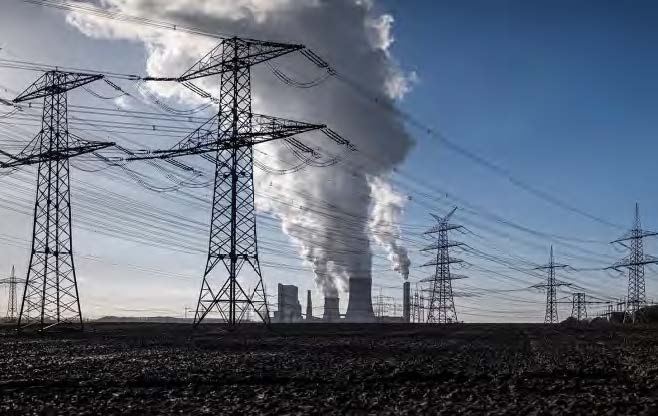 While Rishi Sunak and Jeremy Hunt grapple with balancing the UK budget, with all the implications for our taxes and the balancing of our domestic finances, a much bigger and more dangerous budget is ticking away.
While Rishi Sunak and Jeremy Hunt grapple with balancing the UK budget, with all the implications for our taxes and the balancing of our domestic finances, a much bigger and more dangerous budget is ticking away.
We are living on a ‘Carbon Budget’: the amount of carbon we can put into the atmosphere and still reasonably maintain human life on earth. At the moment we have used up 90% of the budget which would give us a 67% chance of staying within the 1.5°C of warming. UN reports published in November warn that there is no longer a ‘credible pathway to 1.5°C’. Indeed, the trajectory of our current policies is driving us to 3.2°C of warming by the end of this century.
I don’t believe the human race and the eco systems we depend on can possibly survive that, and yet it is within the lifetime of the children in our nurseries and primary schools.
Antonio Guterres, secretary-general to the United Nations has said: “We have dramatic situations in Ukraine, but this is the crisis of this moment. It is the crisis of our lifetime. The defining issue of today’s world. Climate change must be a central priority for all governments, all companies, all cities… civil society everywhere. If we are not able to reverse the present trend that is leading to the greatest catastrophe in the world, we will be doomed.”
Science tells us that Greenhouse Gas emissions must be halved by 2030 if we are to avoid the worst effects of Climate Crisis. Yet the latest pledges from governments around the world suggest that in 2030 emissions will still be increasing by 10% each year. We are still heading at breakneck speed in the wrong direction. “So what I do can make no difference.”
In many ways I agree. Massive changes are needed on a global scale to make a real difference. There needs to be a carbon tax, applying the ‘polluter pays’ principle and providing the dividend for new, fossil-free technologies to take off at scale. We need to reassess how our economies work so that we only aspire to growth that can be accommodated on one planet. Massive fossil fuel multinational companies need to be held accountable and to change direction. The trillions of dollars in the private sector need to be set to work in effecting a swift and radical transition, rather than in applying greenwash.
The extent and the depth of the changes needed is almost unimaginable and certainly puts my daily efforts to reduce my carbon footprint into the shade.
But the alternative is to ‘rubber stamp’ the direction in which we are headed. To wash our hands of it and the consequences for our children. We are the global north. Three billion of the world’s population have an annual carbon footprint smaller than that of our refrigerators. We should shoulder our responsibility and speak out!
Since the summer I have been working to re-launch ‘Ring out for Climate!’, encouraging church bells around the world to ring out their warning about the crisis and to speak up for Climate Justice on the eve of COP 27. In addition to writing to all the bishops and deans in England, Scotland and Wales, I wrote individually to over 100 Episcopalian bishops in the USA and all the Anglican bishops in Australia in an attempt to develop the global reach of the initiative. I just hope it achieves something.
We are part of a vast global community and together surely our voice can make a difference!
Edward Gildea, Eco Team Leader
Let’s bust a couple of myths! - October 2022
In my discussions with people about the environmental crises we face, certain arguments come up again and again:
‘The problem isn’t CO2 emissions it is population growth. The more people; the more emissions we will get. We need to reduce the world population.’
 |
Population is indeed a problem, but it is not directly related to climate change. Indeed, for most parts of the world, the problem is population implosion, not explosion. In developing countries and acutely in China, birth rates and populations are falling while life expectancy is increasing. We already have a shortage of staff caring for the elderly; that shortage is going to become acute. That is why in China and Japan they are developing ‘Carebots’ so that the old and infirm can be cared for by robots. That doesn’t sound too appealing, does it?
Although global population has increased massively since 1950, The population growth rate has now declined to 1.1% and is set to fall further, but there are some countries with rising populations, such as Oman, Niger, the Congo and Uganda. There are three key solutions: education of girls, better health care and getting rid of corrupt dictatorships. If only! It is corruption that means that people have no spare earnings to put in a pension, or a safe, inflation-proof place to keep it if they do. Without a pension, you have to rely on children to support you in old age.
Health care would reduce rates of childhood morbidity, but until those rates are reduced, people will tend to have more children, calculating that some will die. Meanwhile empowering women would lead to a whole host of benefits to humanity!
No. The real driver of Climate Change is affluence. People who own private jets, are frequent fliers or who own SUV’s, the people who regard themselves as ‘exceptional’, have far greater carbon footprints than whole towns or villages in Africa and the global south. The affluent really should not be blaming the poor. Our role should be helping countries such as India, who quite legitimately want to reduce poverty, to do so using clean energy and clean technologies.
Tragically of course the Climate Crisis will solve any problems of overpopulation in developing countries in the most cruel and unjust way: they are the ones losing their crops, lives and livelihoods already. They are already paying the price for a problem they did not create.
‘With the rising price of gas, increased mortgage rates and people having to choose between heating and eating, we simply can’t afford sustainable lifestyles.’
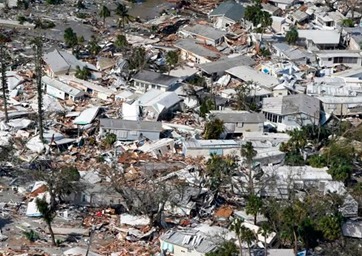
Florida Hurricane damage
|
It is quite frequently argued that a Green Transition would cost too much and would bankrupt us. I wonder if such people have added up the spiralling costs of not addressing the climate crisis. The hurricane damage in Florida is set to cost insurers $27-36bn and will wipe out the savings of all those without insurance. The cost of the massive floods in Pakistan are estimated at $10bn. I suspect that cost will have to be borne by the government, individuals and the poor rather than insurers. It will be crippling for a country already struggling with debt.
Here, so far, our floods are more localised and our storms rarely reach hurricane force, but harvest failures around the world are already driving up food prices making the stark choices for the poor even more difficult.
Plans to insulate homes, schools and hospitals were abandoned in the years following the banking crisis on the grounds that we couldn’t afford them. Had we done so, our homes would be warmer and our gas bills would be lower already. Every delay in addressing climate change racks up the cost of action and makes life harder for the poorest.
Somehow, we have to address ALL the tough issues that we face simultaneously; not play one off against the other as if it were a zero-sum game.
Edward Gildea, Eco Team Leader
What the Summer taught us - September 2022
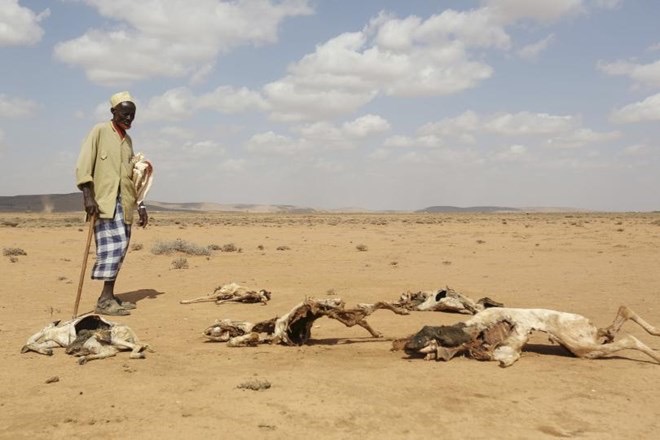 The drought and record-breaking temperatures of summer brought home to us all the harsh reality of the climate crisis. The heat was almost unbearable. Farmers struggled. Gardens were scorched. Then the skies broke and the rains came flooding down.
The drought and record-breaking temperatures of summer brought home to us all the harsh reality of the climate crisis. The heat was almost unbearable. Farmers struggled. Gardens were scorched. Then the skies broke and the rains came flooding down.
Our experience was just a microcosm of the catastrophic impacts of climate change around the world: floods and droughts acting in tandem to destroy lives and livelihoods.
The Horn of Africa, and Somalia in particular, is suffering an unprecedented drought. Large areas have had no rain for two years; 20 million people are at risk of starvation; cattle and livestock are dying by countless thousands and children, of course, are at the greatest risk of malnourishment.
At the same time the floods in Pakistan have affected 33 million people - half the population of the UK. This is devastation on an unimaginable scale. The current count is 1,100 people dead; 250,000 km2, a third of the country, lies under water, with millions of acres of agricultural land ruined; 700,000 cattle drowned and the damage already put at over $10 billion.
The poorest of the poor are suffering the injustice of the climate crisis, while the costs of our failure to transition away from fossil fuels are going to far outweigh the costs of the transition itself. Massive crop failures, combined with the war in Ukraine, will drive up food prices here, affecting the poorest most acutely.
We have put 2.4 trillion tonnes of CO2 into our delicate atmosphere. When you add methane into the mix, the warming influence of the whole basket of greenhouse gases has climbed a staggering 47% since 1990.
In his recent book Hothouse Earth, Bill McGuire says, ‘If world leaders had taken purposeful avoiding action in 1990 when the IPCC published its first report, we could be well on top of the problem now, with fossil fuels largely confined to the dustbin, renewables dominant and emissions under control and on the way down.’
‘We have been put on notice time and time again about the potentially catastrophic impact of rising greenhouse gas levels, but we have repeatedly refused to listen and chosen not to act.’
‘None of the world’s biggest economies are on target to keep the promises they made in Paris and current estimates put the global average temperature rise at 2.7? when anything over 2? will seriously threaten the stability of global society.
In the face of this we are all likely to feel powerless. ‘What can I do?’ ‘How will anything I do make a difference?’ And indeed, I am haunted by the same sense of futility. But there are reasons why we should all take action:
• For the sake of our integrity. We will be able to look our children in the eye and they will know we did our best.
• Because we should ALL tread more lightly on the planet, and as members of affluent western society, we tread far more heavily than most of the world’s population.
• Because this is how movements grow. Do it. Talk about it. Get others to do it too.
• Because we live in a democracy with freedom of speech, so ultimately we can push, pull or drag our politicians into taking action.
Unfortunately, far too many people feel that they are exceptional. That their wealth entitles them to live differently. But that is certainly not what Christ taught us. He taught us to open our hearts.
If our hearts are not weeping now, there is something wrong with our hearts.
If our politicians are not moved to action, there is something wrong with our politicians.
Suggestions on what we can all do can be found on our website here.
Edward Gildea, Eco Team Leader
Paying the Price - July 2022
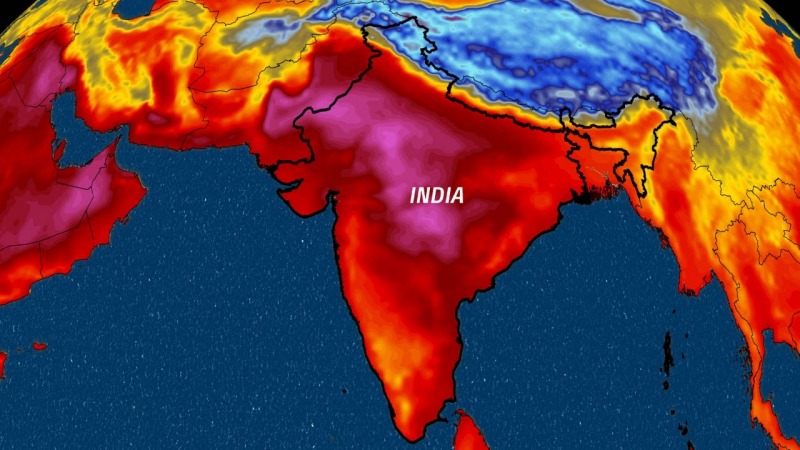 Let’s be in no doubt about it. Humanity is beginning to pay the price for our negligence about the Climate Crisis, and that price is only going to increase.
Let’s be in no doubt about it. Humanity is beginning to pay the price for our negligence about the Climate Crisis, and that price is only going to increase.
India and Pakistan have been suffering from exceptionally high temperatures since March this year. The hot season arrived unusually early, affecting north-western India and Pakistan, setting a record as the hottest March since records began 122 years ago. It has also been combined with a drought, with rainfall being only a quarter to a third of normal.
Several cities across India had high temperatures over 42.8 °C (109 °F), reaching 45 °C in some cities and while in Pakistan the city of Nawabshah recorded an unimaginably high temperature of 121 °F. Birds were seen falling from the sky in Gujarat.
The rich have the option of retreating to air-conditioned homes and offices, but for the poor there is little escape. Imagine, then, being a peasant or labourer who has to work in such temperatures.
“It’s become impossible to work after 10 o’clock in the morning,” said Sunil Das, a rickshaw puller in Noida on the outskirts of Delhi. “I head back home after 10 and resume in the evening when the heat has subsided a bit,” Das said. “It has reduced my earnings but what alternative do I have?”
Imagine, too, the consequences of your well or water hole going dry in such heat and drought… Human life ceases to be sustainable.
‘But that is India. Thousands of miles away.’ There will be some that consciously or unconsciously diminish the enormity of the event in such ways. ‘Things like that often happen in India or Africa. They must be used to it.’ ‘They’ve brought it on themselves with their coal mines.’
It is true that India is resorting to coal to generate the energy needed to empower an economy that will lead people out of poverty. But over 95% of the gases in our atmosphere that are causing these heatwaves are the product of 200 years of the fossil fuel powered economies of the developed world. It is our legacy.
We will come across arguments and blame games that are, at their heart, racist at worst or demonstrate a lurking post imperial mindset. They are certainly not Christian.
And despite the thousands of miles, we will feel the impact here ourselves, because of the impact on harvests. The heatwave is increasing local prices in India and reducing supply having occurred during the final weeks of the wheat growing season, killing the plants shortly before harvest.
We have become acutely aware of how dependent we are on Ukraine and Russia for wheat, fertilizer and sunflower oil. Together they account for 25% of the world’s wheat exports, an amazing 80% of sunflower oil exports and 15% of global fertilizer. Our food supply chains have never looked so vulnerable. Reductions in harvests anywhere else in the world will have even greater impacts on the affordability of food.
So that bad news is compounded by another record-breaking heat wave which hit parts of the US in June, with some states hitting triple digit temperatures. More than 100 million Americans were issued with heat and ‘excessive heat’ warnings while in Kansas at least 2,000 cattle died due to the heat and humidity. More than 100 high temperature records are expected to be broken during July, mainly across the southern and eastern regions of the US.
UN secretary general António Guterres has warned that humanity is facing a “perfect storm” and that the crises are widening inequality between the north and south. “Inequalities are still growing inside countries, but they are now growing in a morally unacceptable way between north and south and this is creating a divide which can be very dangerous from the point of view of peace and security.”
Meanwhile at home, our own Climate Change Committee, led by former Conservative environment secretary, Lord Debden, voiced fears that ministers may renege on the legally binding commitment to achieve net zero greenhouse gas emissions by 2050, noting “major policy failures” and “scant evidence of delivery”. Now more than ever we need to pray and exert whatever influence we have.
Edward Gildea, Eco Team Leader
The Queen has kept her pledges. It’s time to keep ours - June 2022
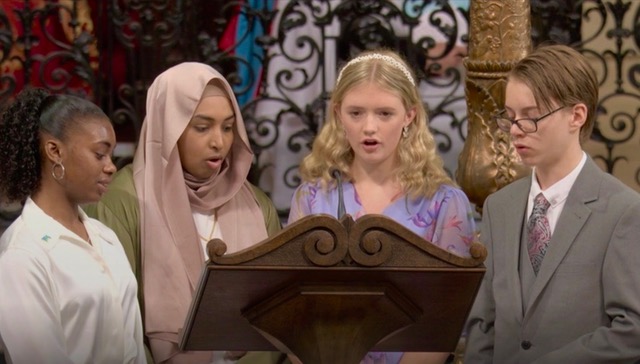 During the Platinum Jubilee, we celebrated and gave thanks to the Queen for keeping the vow she made over 70 years ago to serve the nation and Commonwealth. She has been faultless in keeping that vow.
During the Platinum Jubilee, we celebrated and gave thanks to the Queen for keeping the vow she made over 70 years ago to serve the nation and Commonwealth. She has been faultless in keeping that vow.
At the Jubilee service in St Paul’s Cathedral, representatives of young people from around the Commonwealth asked the 2,000 strong congregation of political and spiritual leaders: “Will you hallow life in all its richness and diversity?” and “Rejoicing in the beauty of this earth, will you protect and care for our environment?” To which the replies came back resoundingly, “We will!”
However, such vows and promises do not have a track record of being kept.
At COP 26 there was an agreement and pledge by world leaders to reduce methane emissions. Those emissions have since spiked. The International Energy Agency has calculated that methane emissions from the energy sector are about 70% greater than the sum of estimates submitted by national governments. This is of massive concern.
https://www.iea.org/reports/global-methane-tracker-2022/overview#abstract
Moreover, three former UN climate heads say that the gaps between government promises and actions will lead to “catastrophic” climate breakdown, as governments have failed to implement the actions needed to fulfil their promises.
The policies and measures actually passed by governments could lead to temperature rises of 3.6C, which would have irreversible changes to the global climate and “catastrophic” impacts for humanity. https://www.theguardian.com/environment/2022/jun/02/current-policies-will-bring-catastrophic-climate-breakdown-warn-former-un-leaders
It was heartening that Prince William’s speech at the Platinum Party at the Palace had such a strong focus on the environment, reflecting the findings of successive IPCC reports, saying that, “the pressing need to protect and preserve our planet has never been more urgent.”
While applauding this message, I try to avoid the phrase ‘save the planet.’ The planet will be fine for a few more billion years spinning on its axis and revolving around the sun. It is arrogant to think that anything we do can ‘save the planet’. What we need to do is have the humility to recognise that our lives totally depend on the fragile ecosystems of the earth, and that man-made climate change and biodiversity loss are already massively affecting those systems.
For me it’s not just the wildlife of polar bears, albatrosses and tigers that we must save, but the micro-organisms of the soil and the oceans, on which we and all wildlife depend. The damage we have done to our soils, seas and skies has placed us in a precarious position. The war in Ukraine is showing how vulnerable our food supply chains are. Food prices are rising sharply already. Repeated harvest failures in India, China the USA and Canada will have an even greater impact.
Prince William spoke of hope and optimism. On such an occasion that was indeed the right note to strike. But it is an optimism I am unable to share. Extreme weather conditions will become ever more frequent as we head to carbon zero. It is only after that that future generations will slowly turn the world carbon negative, extracting the emissions that we continue to pump into our fragile world, and slowly bring temperatures back down.
But it is not for children and grandchildren to bear that burden yet. It is for us, the adult generations, to do everything within our power, personally, locally, nationally and internationally to start the long overdue transformation of global economies and politics that are needed to change our global trajectory.
Failing to keep the pledges made at St Paul’s Cathedral would be unforgivable.
Edward Gildea, Eco Team Leader
Can democracy save us? May 2022
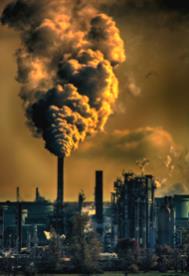
Photo by Chris LeBoutillier on Unsplash |
I am getting increasingly concerned that democracy is incapable of addressing climate change. It has a spectacularly long record of failing to do so!
It is 30 years since 154 states at the United Nations signed an international treaty to combat “dangerous human interference with the climate system,” and 33 years since Margaret Thatcher delivered her famous speech to the UN on Climate Change 1:
“What we are now doing to the world, by degrading the land surfaces, by polluting the waters and by adding greenhouse gases to the air at an unprecedented rate—all this is new in the experience of the earth. It is mankind and his activities which are changing the environment of our planet in damaging and dangerous ways.
Our ability to come together to stop or limit damage to the world's environment will be perhaps the greatest test of how far we can act as a world community,” she said. “We shall need statesmanship of a rare order.... so that we do not live at the expense of future generations,”
It was a brilliant speech, informed by her scientific background and clear grasp of what the evidence was telling us. But nothing happened. A third of a century later we are still pouring greenhouse gases into the atmosphere at a rate of over 36 billion tonnes a year 2 and holding conferences where there is much posturing but negligible substantive agreement.
Rather than blame the negligence of successive political leaders, though, shouldn’t we recognise that there is something inherent in democracy itself that is incapable of effective action?
Politics around the world is totally lacking in ‘Cathedral Thinking’. Great civilizations build for great time frames, way beyond the economic or pragmatic needs of the present. Our church is an example. Elected politicians, however, are compelled to think in very short time frames; specifically, the desire to get re-elected in 4-5 years’ time. They prioritise the issues they hear on the doorstep, and climate change doesn’t feature there.
This leaves the interests of future generations unrepresented, neglected and abused. Successive governments have kicked the challenge into ‘the long grass’ rather than take actions that might prejudice their electability, during which time the crises have become deeper, more dangerous and far more expensive to fix.
Professor Rebecca Willis has interviewed MPs extensively as part of her research 3. She found that although they accepted the science of climate change, most showed a reluctance to discuss the far-reaching implications for human society. ‘Taking an active role on climate doesn’t fit current institutional norms.’ ‘If you are too forthright you may not be seen as a suitable candidate for ministerial office.’ Politicians appear to be presenting climate change as ‘a relatively unthreatening, manageable problem,’ and although their position is not supported by science, ‘climate change deniers have a solid foothold in mainstream politics.’ A form of ‘socially organised denial’ is operating, where politicians play down the depth and extent of the crisis, so their electorate assume that the crisis cannot therefore be very real.
To effectively address the Climate and Environmental Crises we are going to need deep seated reform to the way our system of government operates. There is very little chance of that, but since the House of Lords is long overdue to complete its reform, maybe we could make a start there?
Wouldn’t it be great if the House of Lords were a more democratic institution? But if it were, how could we avoid introducing the short-term
mindset that has hitherto prevented effective action on Climate Change?
I have a cunning plan for that....
Edward Gildea, Eco Team Leader
1 https://www.youtube.com/watch?v=VnAzoDtwCBg
2 https://www.iea.org/news/global-co2-emissions-rebounded-to-their-highest-level-in-history-in-2021
3 Rebecca Willis, Too Hot to Handle, Bristol University Press 2020
Easter was a Zeitenwende too! April 2022
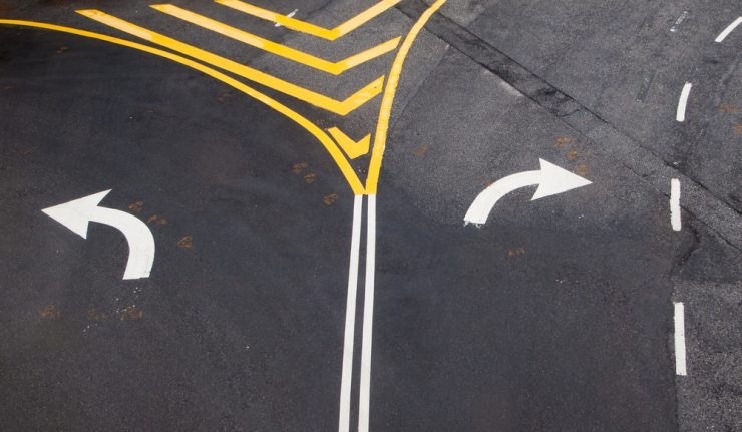 Germany, 50% of whose gas comes from Russia, is facing a massive energy crisis. Its other primary sources of energy are lignite, a particularly polluting form of fossilised peat, and coal. Austria imports 65% of its gas from Russia and Poland: 70%. They are major contributors to the £217 million that Europe sends to Russia every day which funds their appalling war in Ukraine. Something has got to change.
Germany, 50% of whose gas comes from Russia, is facing a massive energy crisis. Its other primary sources of energy are lignite, a particularly polluting form of fossilised peat, and coal. Austria imports 65% of its gas from Russia and Poland: 70%. They are major contributors to the £217 million that Europe sends to Russia every day which funds their appalling war in Ukraine. Something has got to change.
Germans have a word for this sort of change: Zeitenwende. The changing of eras. The turning from one epoch and entering another. Just as Easter was.
The Resurrection of Christ was a Zeitenwende for the whole world. But in many ways, the change is still a ‘work in progress’. There are still the mighty who need to be put down from their seats; the hungry still need to be fed with good things and the proud still need to be scattered in the imagination of their hearts.
Europe has learned its mistake in thinking that trading with Putin might help bring Russia into the democratic fold of nations. It merely empowered him and gave him licence to behave with ever greater narcissistic megalomania. So now European leaders find themselves going cap in hand to the leaders of Qatar, which has been repeatedly accused of sponsoring terrorism or turning a blind eye to terrorist finance; to Saudi Arabia, whose leader was responsible for 81 executions in March, in complete defiance of international standards of justice and humanity and was responsible for the grotesque murder of journalist Jamal Khashoggi, and to Dubai, whose princess Latifa was abducted in the Arabian Sea in 2018, and whose first daughter, Shamsa, was abducted from Cambridge in 2000. Neither of them has been seen since.
There seems to me to be a pattern here between immense fossil fuel wealth and frighteningly unethical, if not corrupt, behaviour. But herein lies the opportunity of our Zeitenwende:
We could turn to a world in which every country is self-sufficient in clean, renewable energy and we no longer have to trade with dictators and kleptocrats. A world where we don’t have to sell them armaments in order to balance our immense spending on oil. A world where most energy is generated locally is and owned by communities, especially in Africa and India, where they can leap-frog the need for massive electricity and gas grid systems owned by faceless multinationals and derive direct benefits from God’s gifts of sunlight and wind.
It almost sounds like Eden! The problem is getting there.
For now, the race is on to get Liquified Natural Gas shipped unsustainably from the US, Venezuela (another corrupt state) and the Middle East. But LNG terminals will have to be built first. Germany will increase its levels of coal and lignite extraction, with the consequent increases in Greenhouse Gas emissions. This crisis is set against the backdrop of the calamity described in this year’s IPPC report, which painted an ever more vivid and urgent picture of the damage we are doing to our own prospects of survival on this planet. The frightening announcement of temperature rises of 30-40 °C at the poles is a stark warning that the emergency is accelerating and that there is no instant ‘OFF’ switch available once we finally decide to take the threat seriously.
I only hope that we take the right turning at this Zeitenwende, and that the terrible suffering in Ukraine forces governments to take the decisions they have been avoiding for decades.
Edward Gildea, Eco Team Leader
It’s a Gas, gas, gas! March 2022
 With gas prices soaring even before the outbreak of war in Ukraine, National Insurance about to go up and inflation on the rise, some are claiming that now is not the time to make the switch to clean energy or to worry about the climate crisis.
With gas prices soaring even before the outbreak of war in Ukraine, National Insurance about to go up and inflation on the rise, some are claiming that now is not the time to make the switch to clean energy or to worry about the climate crisis.
It has seemed to me unarguable that, in order to fund the transition away from fossil fuels to clean energy, we need to stop subsidising fossil fuels and embark on a low, but escalating carbon tax, which would fund the switch to clean energy and fully insulated homes, creating green jobs and leaving nobody out of pocket.
But how can we possibly embark on such a tax with gas prices soaring as they are?
On the other hand, we have just suffered four extreme storms in quick succession: Corrie, Dudley, Eunice and Franklin, each causing suffering, loss of life and livelihoods and bringing their own costs in damage. The three storms of the winter of 2019-20 cost the insurance industry £800 million; probably a fraction of the uninsured losses people have had to fund from their own pockets!
As I write, the latest IPCC report (Intergovernmental Panel on Climate Change) has stated with high confidence that ‘The rise in weather and climate extremes has led to some irreversible impacts as natural and human systems are pushed beyond their ability to adapt.’ The report makes very grim reading indeed as it describes levels of species extinctions, mass mortality events and irreversible changes to permafrost and ice sheets. https://report.ipcc.ch/ar6wg2/pdf/IPCC_AR6_WGII_SummaryForPolicymakers.pdf
Of course the appalling and tragic war in Ukraine is preoccupying our thoughts and prayers most, filling us with horror and sympathy for the Ukranian people, while bracing ourselves for the sacrifice of further increases in gas and petrol prices.
As increased fuel bills land on our doorsteps, those in fuel poverty will have a very hard time, not least because three initiatives designed to help them over the last decade have been abandoned. In 2015 the Government terminated its flagship Green Deal for Home insulation because it said take-up had been too low. It had been hailed as “transformational” and the “biggest home improvement programme since the second world war” by ministers when it was launched in 2013.
Also in 2015, the government scrapped plans to make all new UK homes carbon neutral. The Zero Carbon Homes policy, first announced in 2006, was due to come into effect in 2016.
It would have ensured that all new dwellings would generate as much energy through renewable sources, such as wind or solar power as they would use in heating, hot water, lighting and ventilation. Hundreds of thousands of homes would have been completely free of gas and electricity bills!
Then in 2021, just over six months after its launch, the Government scrapped the Green Homes Grant scheme, which had been the centrepiece of Boris Johnson’s promise to ‘build back greener’.
The abandonment of this £1.5bn programme, which would have offered poorer households grants of up to £10,000 for insulation or low-carbon heating, leaves the UK without a plan for tackling one of the biggest sources of greenhouse gas.
We are now very exposed to the current rises in gas prices as Germany and all Europe finally tries to extricate itself from dependence on Russian gas.
My fervent hope is that this will provide a massive stimulus to clean energy production. Further delay would mean that the cost of mitigation gets higher; we will have to pay more to adapt to extreme weather conditions and the costs of loss and damage mount ever higher. Delay has cost us dear, with the poorest in the UK and around the world suffering most.
Despite the horrors and suffering unfolding in Ukraine, I hang on grimly to my vision of a world where we no longer have to wage war to secure oil and gas supplies. Every country in the world has the opportunity to be self-sufficient in clean, sustainable energy, whether from solar, wind, hydro, tidal or ground source energy. We don’t need to be beholden to inhumane autocrats and kleptocrats. We are blessed with a sun which every hour gives us enough energy to satisfy global demands for a whole year!
God has created a world in which peace and freedom from fuel poverty are perfectly possible. We just need the faith and the political will to get there.
Edward Gildea, Eco Team Leader
Ditch Desperate Dan for Lent! - February 2022
|
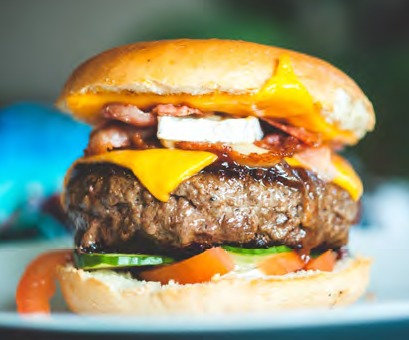
Photograph: Erik Odiin on Unsplash
|
Arguably the single biggest thing you can do for the environment is eat less meat. Here are a few facts:*
-
The carbon footprint of a beefburger is fifty times greater than the carbon footprint of a similar amount of protein derived from pulses, beans or lentils.
-
80-85% of all agricultural land is dedicated to growing feedstuffs for animals or for animal grazing.
-
A typical meat eater requires 10,000m² of agricultural land to support his or her diet; the equivalent of 1.5 football pitches, while a vegetarian requires just 3 penalty boxes.
-
If we all stopped eating animal products, we would save 3.1 billion hectares of agricultural land – the area of the USA, Europe, Australia and China combined!
Meat has become a huge indulgence during my lifetime. It has also been long associated with machismo. Remember Desperate Dan and his cow pies? Just as many cars are designed with male ego in mind, and Top Gear massively played on that laddish culture, addressing our environmental crises is going to require new memes of masculinity!
I’m not quite a vegetarian. I’m an antelopian. That is, I eat meat as often as I think I could have caught an antelope – which is getting less frequent as I get older!
I devised my diet decades ago, on the assumption that a healthy diet would be whatever we were eating as our digestive system evolved. My primary school memory recalled the caveman diet of nuts, fruit, roots and berries, until the men decided to get up off their backsides and hunt an antelope. Returning victorious, they would light the fire, strike the drum, max out on meat, before crashing down under the jacaranda tree for another week or two, eating whatever the women gathered. Men, eh?
My antelopianism seems to be keeping me fit and is very affordable! My treat of the week is fish on Sunday evenings, whatever is sustainable from Saffron Fish, reserving meat for moments of celebration. That way I can afford something local and humane. I think we should all know where our meat has come from and how it was reared.
I don’t want happy Herefords to stop grazing in Welsh valleys or sheep to cease populating the Lake District. There is a very real role for freely grazing animals in good Permaculture or Agricology. They stimulate micro-organic activity in the soil. But we really should not be eating cheap, factory-produced meat, whether from the UK, Texas or Argentina – from a humanitarian point of view, let alone to preserve our future on this planet.
Eating less meat would mean all those billions of hectares could start sequestering carbon; there would be reductions in acid rain, water use, pesticides and the use of antibiotics, 80% of which goes into animal production. The alarming rate of extinction of species who have lost their habitats to feed our appetites, would also slow dramatically. Don’t we owe it to God’s creation?
So with Lent upon us, how about giving up meat for 3 or 4 days a week. Or entirely? Explore the wonderful variety of vegetables. Ditch Desperate Dan. Become an Antelopian!
Edward Gildea, Eco Team Leader
*Mike Berners Lee ‘How Bad are Bananas?’ and BBC New Year Solutions Ep 1
Edward Gildea's interview on Pod Barber
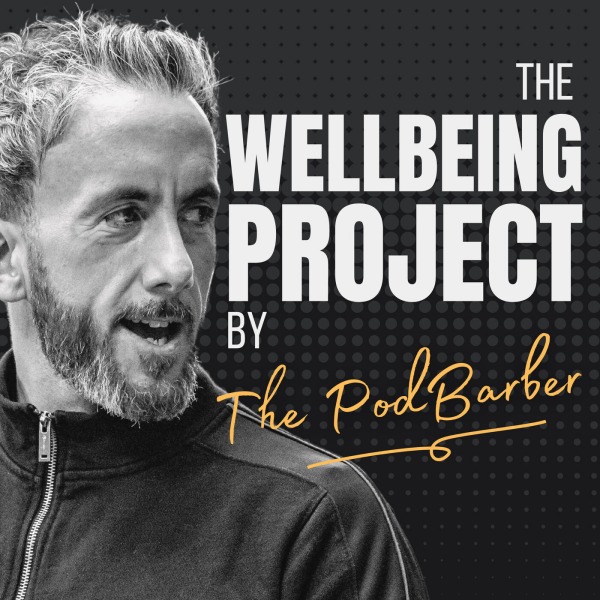 Our Eco Church team leader Edward Gildea's interview on Saffron Walden’s Pod Barber's Wellbeing Project went live on 14th January 2022.
Our Eco Church team leader Edward Gildea's interview on Saffron Walden’s Pod Barber's Wellbeing Project went live on 14th January 2022.
In it Edward Gildea talks candidly about the dangers we face, why politics has failed us, how our the basis of our economic system needs to change and how we can all make a difference.
Click on the link below to have a listen!
https://www.buzzsprout.com/1767978/9752953-s03e08-climate-change-it-s-not-too-late-to-make-the-changes-together-let-s-get-started-with-edward-gildea.mp3

What did you do about Climate Change? - January 2022
We are probably all familiar with the First World War recruitment poster of the little girl asking her father, ‘What did you do in the Great War, Daddy?’ and the look of shame and guilt on the face of the father who has clearly not yet enlisted.
So what would be the expression on your face if your daughter, son, grandson or granddaughter were to ask you, ‘What did you do to limit global warming?’ Would you be able to reply with a clear conscience and a comprehensive list of the actions you took?
Just before Christmas I went with two of my grandsons to the Audley End Santa Railway. It was a magical experience, but it was heart-breaking to see so many families arriving in large petrol and diesel SUVs. Taking your children to see Santa is an act of love. How can that possibly be reconciled with driving an SUV? They accounted for 544 megatonnes of CO2 emissions between 2010-2018, far ahead of the emissions of heavy industry, HGVs, aviation and shipping. Indeed, SUVs were second only to power generation as emitters of greenhouse gases.
How is it that people aren’t making the connection between their choices and their children’s future on this small and fragile planet?
COP 26 is now several months behind us and no one is cheering with much enthusiasm. Commentators talked about ‘keeping 1.5 degrees alive,’ but it is very much on life support, with no nurses in sight. We are currently heading for 4.4 degrees of warming by the end of the century. If we include the promises of reductions by member states, we still reach 3.6 degrees. Both outcomes will be utterly catastrophic for human life. (See the UN Emissions Gap Report https://www.unep.org/resources/emissions-gap-report-2021)
On the plus side, there was, for the very first time in 26 years, an explicit reference to ‘phasing down unabated coal power and phasing out of inefficient fossil fuel subsidies.’ Apart from wondering how it is that it has taken world leaders a quarter of century to name the elephant in the room, this statement leaves the doors of self-destruction wide open: ‘down’ could be merely fractional, and no one has defined what an ‘inefficient’ subsidy is. Presumably we are free to continue with ‘efficient’ fossil fuel subsidies!
There was agreement on methane, but it made no mention of the massive amounts of methane emitted by our meat and dairy industries. Its focus was on inefficient practices of the oil industry that should never have been allowed in the first place.
One thing had changed though: Politicians were under more pressure than ever before from the public, from activists, from civil society, the Church, aboriginal groups and the nations of the Global South. It is clear that there is no more long grass into which the ball can be kicked.
But democracy is clearly failing us, and I will explore the reasons for that next time....
Edward Gildea
Church Eco Team Leader
A Toilet for Christmas - November 2021
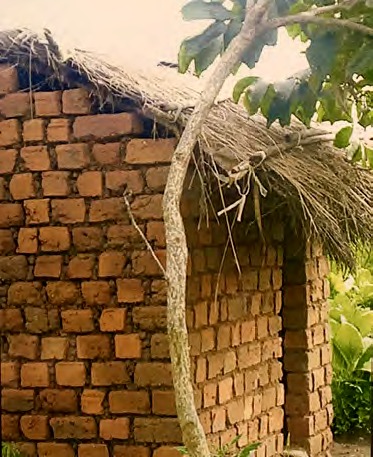 Fresh from singing ‘Enough is Enough’ (with thanks to Oli King for teaching us so well!) many minds in the congregation must have pondered once again how sad it is to see Christmas so commercialised and wondered what they could do about it.
Fresh from singing ‘Enough is Enough’ (with thanks to Oli King for teaching us so well!) many minds in the congregation must have pondered once again how sad it is to see Christmas so commercialised and wondered what they could do about it.
Politicians have completed their negotiations at COP 26, and maybe provided some reassurance that their actions will limit global warming to the critical 1.5 degrees. So let us see if we can now play our part in ‘treading more lightly on the planet’.
Over my toilet at home hangs a picture of the toilet it is twinned with in Zambia. A present from my daughters, I couldn’t be more proud of it! Apart from bringing the benefits of sanitation to schools and villages, proper toilets contribute enormously to the safety of girls and women.
My bins are also twinned in support of a rubbish collection and recycling enterprise in Pakistan. Another low carbon present which makes a small but significant difference somewhere else
You can buy goats, beehives, piglets, blankets, period kits, water, school bags and uniforms at Action Aid. Meanwhile, buying Traidcraft presents, while shipping will be involved, your purchases will support small cottage industries and craftspeople using local materials and little energy other than their own.
One of the lessons of our Covid world was to realise how dependent we are on complex supply chains and ‘just in time’ logistics. What an opportunity then to support local shops and businesses, local stall holders and craftspeople to buy produce without air or shipping miles attached, and enjoy the pleasure of a smile over the counter when you make that purchase!
It is always worth checking out the environmental impact of the things we buy. It takes 1,800 gallons of water to make a pair of jeans. More if they are pre-washed, and their life is massively reduced if they are stressed with tears and slashes at the knees and thighs. Fashion can come at a terrible price!
So an alternative to the ‘stuff’ of Christmas is to buy experiences. Having children and grandchildren is a wonderful blessing, not least because it gives you the chance to go to pantomimes and enjoy family events such as Santa train rides or gardens lit at night. Christmas provides us with a wonderful excuse to support the musical and theatrical creativity of the town. The gift of shared pleasures and true enrichment!
The biggest gift of all to give to your family, however, is the gift of an inhabitable planet. With luck I have a decade or so of life left, but the thought of my legacy already haunts me. I know it will not be a good one. Extreme weather events will increase every year until we reach carbon zero in 2050, if indeed we manage to achieve that! And that will not be the end. It will be the beginning: the beginning of the race our grandchildren will have to run to remove all our CO2 pollution from the atmosphere and slowly, slowly, over many decades, start to cool the oceans and reduce the rates of flooding, drought and wildfires. Reducing the enormity of the task they will face may be the greatest gift of all.
Edward Gildea
Church Eco Team Leader
Ring out for Climate! - October 2021
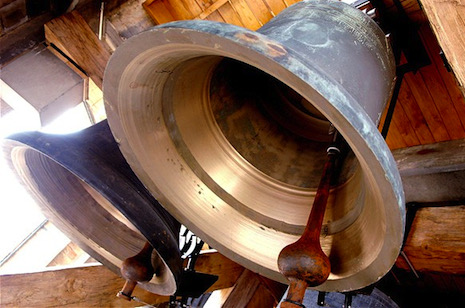 When this edition of the Parish News gets published, the UN Conference on Climate Change in Glasgow will be about to start, and I will be in a state of extreme nervousness!
When this edition of the Parish News gets published, the UN Conference on Climate Change in Glasgow will be about to start, and I will be in a state of extreme nervousness!
Back in the summer I was appointed as a Christian Aid Climate Campaign Organiser, with a brief to raise awareness and mobilise local churches as much as possible in the run-up to COP 26. It has been a great pleasure to address several Climate Sunday services and, by organising Great Big Green Week in Saffron Walden, to hope that I have had some impact on people’s hearts and minds.
In August I thought how great it would be if every church and cathedral bell in the country were to ring out a warning on the eve of COP 26. It's what church bells have traditionally been used for and the warning couldn't be more urgent! So I set about writing to every diocese in the United Kingdom and suggested that the bells ring for 30 minutes from 6pm on Saturday 30th October to sound ‘Code Red for Humanity’.
I was delighted when the idea was endorsed by Graham Usher, Bishop of Norwich and Lead Bishop for the Environment, who included the idea in his C of E Environment Bulletin. The Central Council for Church Bell Ringers were more circumspect, being worried that the bell ringing for COP 26 constituted a political campaign. That raises all sorts of questions about what politics is and the role of the church in it.
Politics is simply what happens when people gather together in communities or cities and organise themselves (polis is Latin for city and gives us cosmopolitan etc). So when the future of humanity is at stake, and nation states have to come together to negotiate, it can’t help but be political.
But the threat of the climate crisis and the fate of all humanity surely takes us onto a whole new level. One which far transcends party politics to a realm where Christians, and people of all faiths, must surely exert all their influence as stewards of God’s creation and as living examples of God’s love for his children.
Having emailed every diocese twice, a bell ringer from Cornwall wrote to say she’d had the idea of ringing bells around the world, and soon I was getting messages from the US. So why not invite Australia and New Zealand too?
Soon I had a heart-warming reply from Bishop Matt Brain of Bendigo, full of enthusiasm for the idea, but describing ‘the sad political reality in Australia where we are enmeshed in harmful policies which are being used to score political points. Coal mining has become something of a shibboleth which has then avoided the actions which can be made.’ In such a toxic atmosphere I can well understand bishops being nervous of following in the footsteps of Thomas à Becket!
Earlier this summer I visited Rev’d John Goddard, our Baptist minister, to encourage him to hold a Climate Sunday service or embark on the Eco Church journey. Towards the end he told me that God had clearly placed the burden of environmental activism on me. I had never thought of it that way, but his words sank in and it certainly does feel to have become a burden, and sometimes a very frightening one.
I would much rather not be an activist! I’d love to get on with a contented retirement, but first I would like to hear the bells of St Mary’s ring out on 30th October. Then, in response to voices around the world, to learn that serious, hope-giving actions were being pledged and taken in Glasgow. Perhaps when the world starts to dramatically reduce its emissions and devise an economic system that works in harmony with nature, I will be able to relax.
Edward Gildea
Church Eco Team Leader
The Great Big Green Week 18-26 September 2021
As the UN conference on Climate Change in Glasgow draws near, join us to celebrate the delicate balance of nature and learn what we need to do to preserve it ending with a Climate Sunday service at St Mary's.
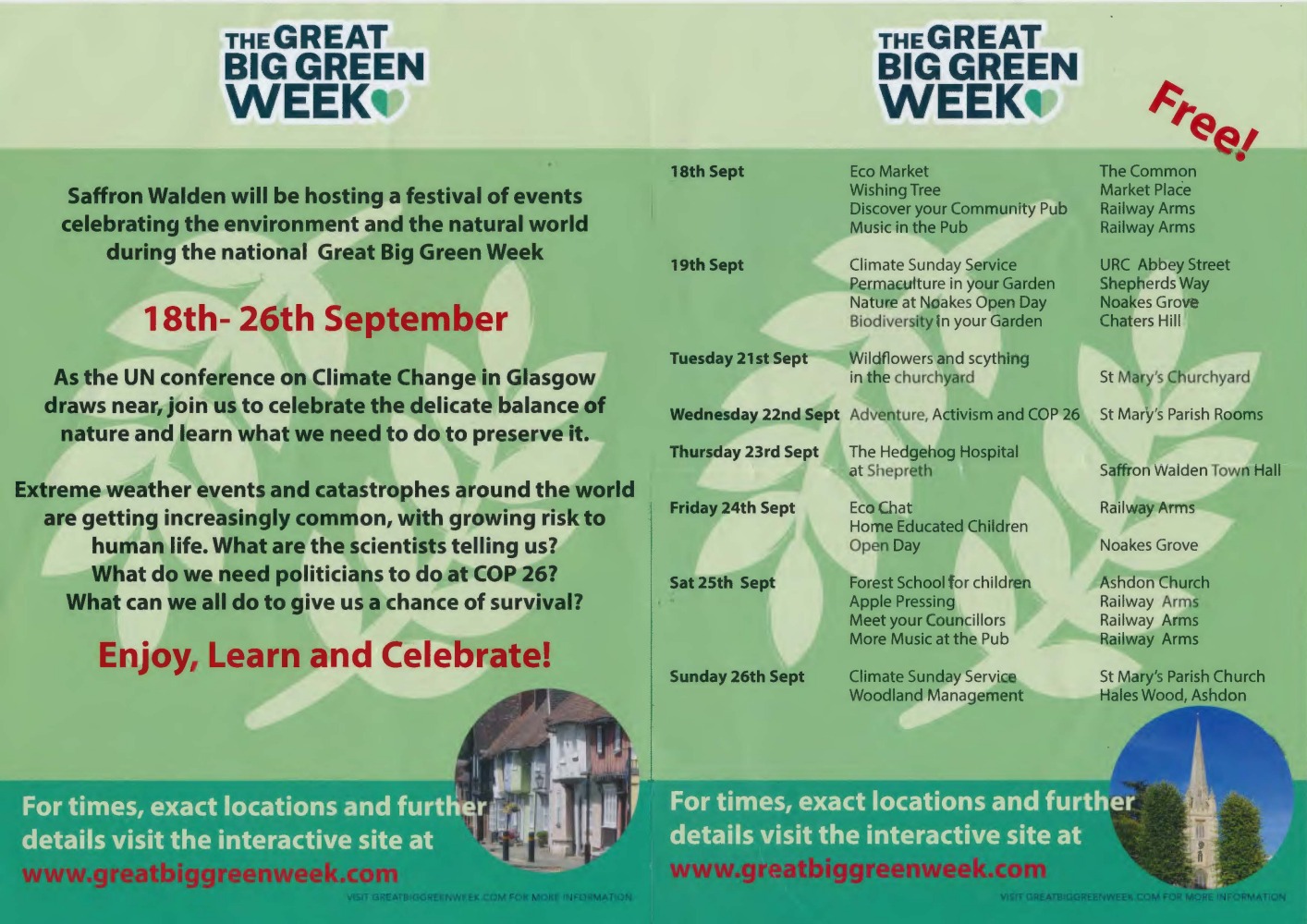
As ye sow, so shall ye reap - September 2021
|
(Invalid module)
Edward Gildea scything the wildflower areas of the churchyard
|
I have greatly enjoyed acquiring a new skill this year: that of scything. Indeed, the first thing I learned is that you don’t ‘scythe’ with a scythe; you Mow. The ‘One man (who) went to mow, went to mow a meadow…’ went with his scythe and the four, five, six or more of them mowed in a staggered line across that meadow.
Another verse, as I mowed the wildflowers I planted in the churchyard, has also echoed in my mind: ‘As ye sow, so shall you reap’. The full line in Galatians has some added fierceness: ‘God is not mocked: for whatsoever a man soweth, that shall he also reap’.
As we have faced a summer of extreme weather events across the globe, the line acquires an even stronger relevance: are we now reaping the consequences of our accelerating abuse of the planet over the last couple of centuries?
The suffering caused by extreme weather events has been appalling. The widespread destruction in the USA, with Hurricane Ida spreading devastation from Louisiana to New York while record wildfires scorched California, prompted Joe Biden to admit it was, ‘yet another reminder that the climate crisis is here’.
The massive storms battered states on the Gulf coast and all the way up the north-east, killing at least 48 in New York, New Jersey and Pennsylvania.
Meanwhile, the Caldor wildfire in California has burned over 200,000 acres, threatened over 35,000 structures and become one of few wildfires to rage from one side of the Sierra Nevada to the other.
Day after day, throughout our rather disappointing summer, we heard of devastating events in Germany, China, Greece, Spain and even London, until ‘extreme’ started to become the new norm.
Indeed, extreme weather events are now five times more likely than in 1990. A Met Office study has shown that an extended period of extreme winter rainfall in the UK is now about seven times more likely due to human-induced climate change and the chances of this year’s record-breaking heatwave in France have increased 100 fold since 1900,
The bad news is that it can only get worse. Since we are still releasing 50 billion tonnes of CO2 into the atmosphere every year, and things will only start to subside after we reach net zero and then become dramatically carbon negative.
We are leaving an appalling legacy. Our children will reap the most of what we have sown, but the immediate injustice is that the poor of the global south are already the ones reaping the consequences of our selfish addiction to fossil fuels.
This year’s IPCC report, after being quite reserved for decades, pulled no punches. ‘Climate change is already affecting every region on Earth, in multiple ways. The changes we experience will increase with additional warming,’ said Co-Chair Panmao Zhai.
And the UN Secretary-General António Guterres said the IPCC report was nothing less than ‘a code red for humanity. The alarm bells are deafening, and the evidence is irrefutable’.
Have we ‘Mocked God’? I’ll leave you to decide. But I know that the planet can only ever be in perfect balance with itself, and that distorting the heat of the oceans and the atmosphere in one side of the scales can only result in consequences on the other.
Let us hope that COP 26 brings this self destruction to an end.
Edward Gildea
Church Eco Team Leader
Talk on Adventure, Activism and COP 26’ in the Parish Rooms at 7.30pm on Wednesday 22nd September.
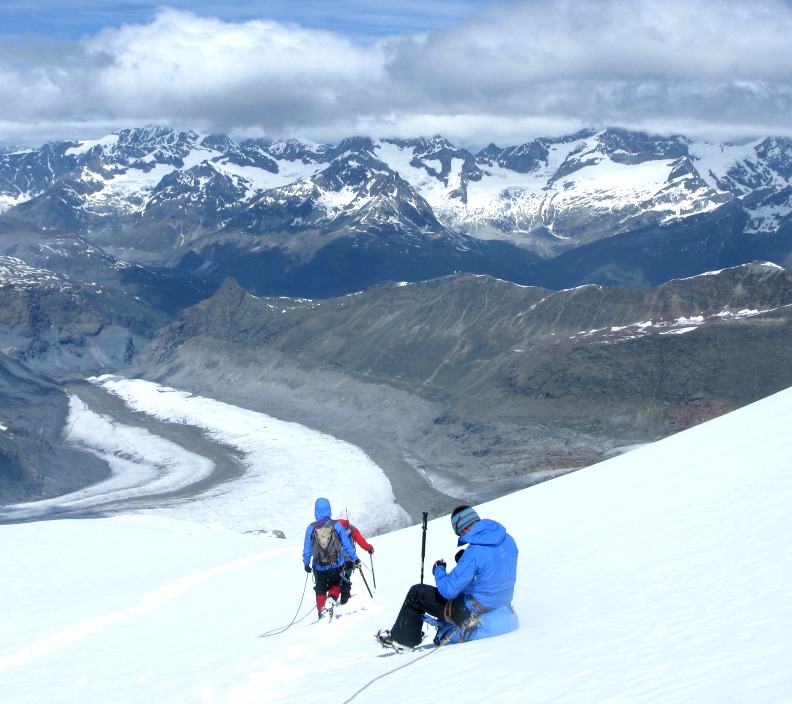 As part of Saffron Walden’s Great Big Green Week Edward Gildea will talk about ‘Adventure, Activism and COP 26’ in the Parish Rooms at 7.30pm on Wednesday 22nd September. Spiced with first-hand experiences of the effects of global warming on oceans and mountains, this illustrated session will explore the importance of COP26 in Glasgow this year for the future of humanity. Come and discuss your own thoughts and and ideas about what we should each be doing about it.
As part of Saffron Walden’s Great Big Green Week Edward Gildea will talk about ‘Adventure, Activism and COP 26’ in the Parish Rooms at 7.30pm on Wednesday 22nd September. Spiced with first-hand experiences of the effects of global warming on oceans and mountains, this illustrated session will explore the importance of COP26 in Glasgow this year for the future of humanity. Come and discuss your own thoughts and and ideas about what we should each be doing about it.
Photo on right: Monta Rosa glacier in the Alps. If you look at the change in the texture and colour of the rock in the valley, you can see the massive loss of depth of the glacier. My talk will include reference to the billions of people whose food supply depends totally on the slow melting of tropical glaciers.
It’s time to get excited! - July 2021
It is time to get excited about the possibilities of a life lived in harmony with God’s creation!
The possibilities for happiness, social justice, economic and emotional fulfilment are still available on our precious and delicate planet, if we are only prepared to change now.
A few weeks ago, four graduates from Cambridge were tasked by our district council to produce a report on ‘A Green Economy for Uttlesford’. Their presentation was inspirational. In a very short space of time, they researched the scope for new, sustainable technologies, industries and jobs. They discovered that in Thaxted there is a new business developing hemp as a building material. It is amazing! As an insulator, as a rigid board, as building blocks and as a green form of concrete. Wouldn’t it be wonderful if our farmers started farming it, our workforce started manufacturing it and our builders started building warm, affordable, carbon-absorbing homes with it!
|
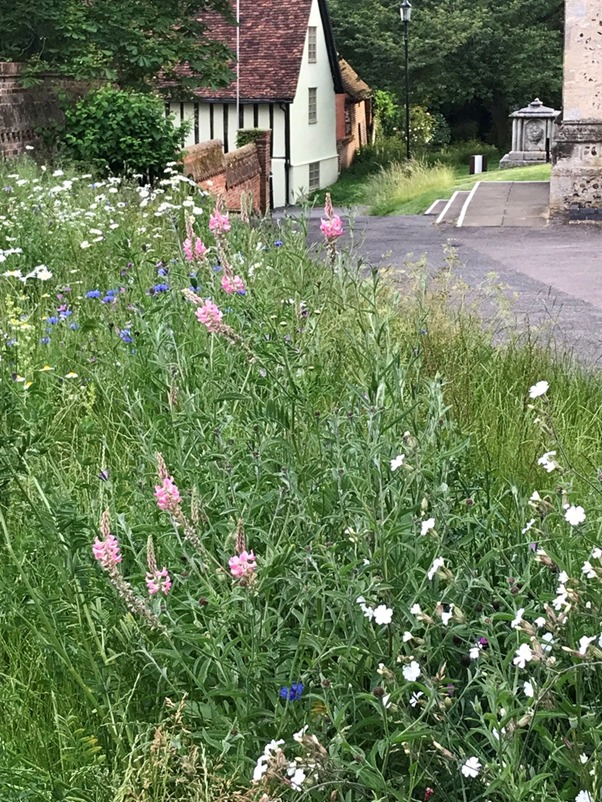
Wild flowers in our churchyard - thanks to our Eco Group
|
They had ideas for a ‘technology incubator’ where research scientists collaborate across a vast range of sciences, networking with entrepreneurs who can see commercial applications, financiers who are looking to invest in the future, green economy and finally transferring to local production sites around Uttlesford. Wow!
We just need to open our eyes and transform our mindset to see that the frightening challenges we face are, in fact, golden, God given opportunities!
‘But who will pay for it all?’ you ask. Firstly, we are realising that the cost of failing to transfer to a fossil free economy is going to cost many times more in financial terms (fire and hurricane destruction, flooded towns and cities and food shortages) and infinitely more in human lives, de-stabilised societies, mass migration and war.
Secondly, governments can achieve massive change simply by regulation. They just need the courage to upset their lobbyists and big donors! Simply by legislating the cessation of petrol and diesel car production has sparked a massive transition in research, development and investment in the car industry. It was, I imagine, instrumental in Nissan’s decision to locate a major battery manufacturing base in Sunderland, creating 6,000 jobs.
Such courage to legislate stimulates industry by providing a new, level playing field on which to compete. The first to change wins the market, whereas without such legislation, the first to change loses… Imagine what such changes could do to the construction industry!
Thirdly, talking to an old college friend of mine, who made an embarrassing fortune in the City, said that ‘a massive wall of money’ hits the City every month from pension contributions. They have to invest it somewhere and at long last, pension fund managers (Larry Fink included) have woken up to the fact that their old portfolios have led us into a scenario of ever-increasing disasters and that they should actually be looking towards long term investment in the future: a green future. One Planet Economics.
And in our own lives, especially for time-rich baby boomers, wouldn’t it be nice to learn to travel again? I mean properly travel. To feel the change in landscape as we pass through it; to observe the changes in culture; to connect with the people we meet; to learn from and enjoy experiences of otherness. Living more slowly, more deeply, more respectfully in an exciting new world! I can’t wait!
Edward Gildea
Church Eco Team Leader
What does Climate Justice actually mean? - June 2021
When I take to the streets to protest about the destruction of the planetary balance we depend on, the most popular chant is:
“What do we want?” “Climate Justice!”
“When do we want it?” “Now!!!” … repeat until your throat is sore…
I wonder, though, what passers-by make of it. What does it actually mean?
In essence it is about the fact that the poor of the world will suffer, and are already suffering, the effects of the climate crisis long before the wealthy who have created the problem. We who have benefited from 250 years of coal and oil powered industries are in a better position to mitigate the effects than those who are only just beginning to emerge from poverty.
Our position on the globe, in relatively high latitudes and cooled by surrounding seas, mean that our climate will remain relatively benign, despite the extreme weather events we have experienced. However, it is still the poor of the UK who will suffer first: when failed harvests drive up food prices or old carbon-based industries are closed down, with no new industries planned to replace it.
|
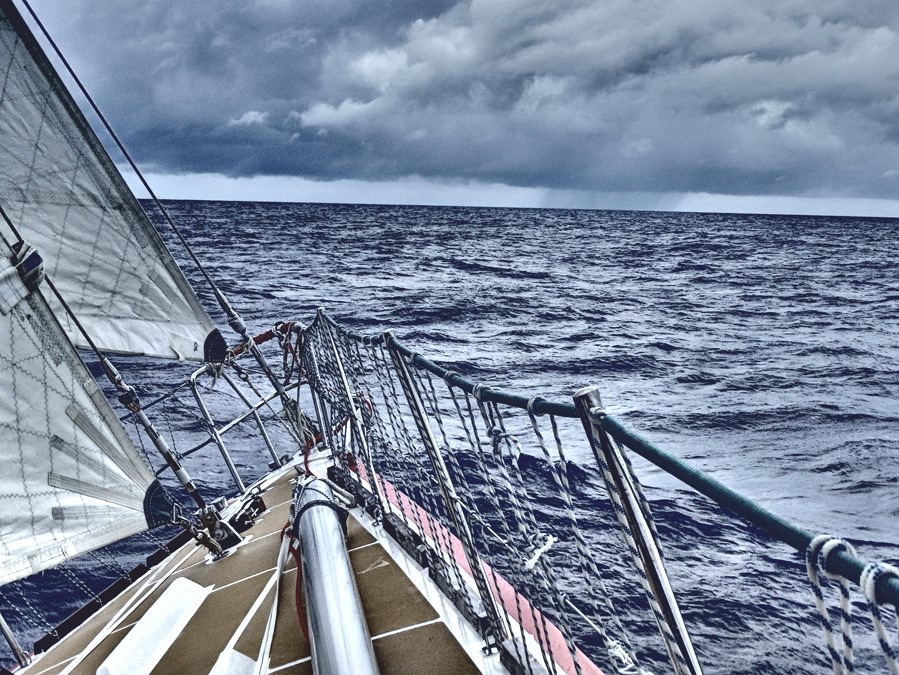
Photo - Edward Gildea
|
Ocean warming, however, is already costing lives on a terrible scale. An international team of 14 scientists examined data going back to the 1950s, looking at temperatures from the ocean surface to 2,000 meters deep. They discovered that the world’s oceans are now heating at the rate of five Hiroshima atomic bombs dropped into the water every second. Mind boggling!
That energy has to go somewhere, and it goes up into the sky forming the vast cloud formations I sailed through in the Coral and Solomon Seas, which start to spin, gathering more and more energy as they turn into hurricanes and cyclones.
The effects of Cyclone Idai, for example, which swept through Mozambique, Malawi and Zimbabwe in March 2019, were still being felt a year later. Idai destroyed crops, ruined lives and left millions without food. At least 900 people were killed and around 2.5 million more were affected and face a grave hunger crisis as crop failures, drought and food shortages continue.
Hurricane Iota struck Nicaragua in November last year, just two weeks after Hurricane Eta caused devastation across Nicaragua, Honduras and Guatemala. It was the country’s strongest hurricane on record and hit the poorest and most vulnerable people hardest. Landslides and floods caused mass destruction. Homes and crops were flattened. Some 160,000 Nicaraguans and 70,000 Hondurans were forced to flee, leaving everything behind to seek safety.
Despite tragedies such as these, I still hear people claiming that the problem is not driven by fossil fuels but by overpopulation. ‘We need to reduce the world’s population’. I asked where they would like to start that reduction. In North America, Australia and Western Europe, where the carbon footprint per person is by far the greatest? Or focus on the mega rich and their growing fleet of private jets? Ahhh…. That is not quite what they had in mind. They were thinking more of sub Saharan Africa and India. Starting their policy there would generate neglible reductions in CO2. The solution over population lies in the education of women and the elimination of corruption so that people have a chance of saving for a pension.
Sadly, however, the pattern of injustice is emerging clearly: our environmental crises will provide the ‘solution’ to the over-population of our planet, starting with the poor and most innocent. So what do we want? Climate Justice!!
Edward Gildea
Church Eco Team Leader
Congratulations to Edward who has been appointed as a Christian Aid Climate Action Organiser during the summer and up to COP26.
What is COP 26 and why does it matter? - May 2021
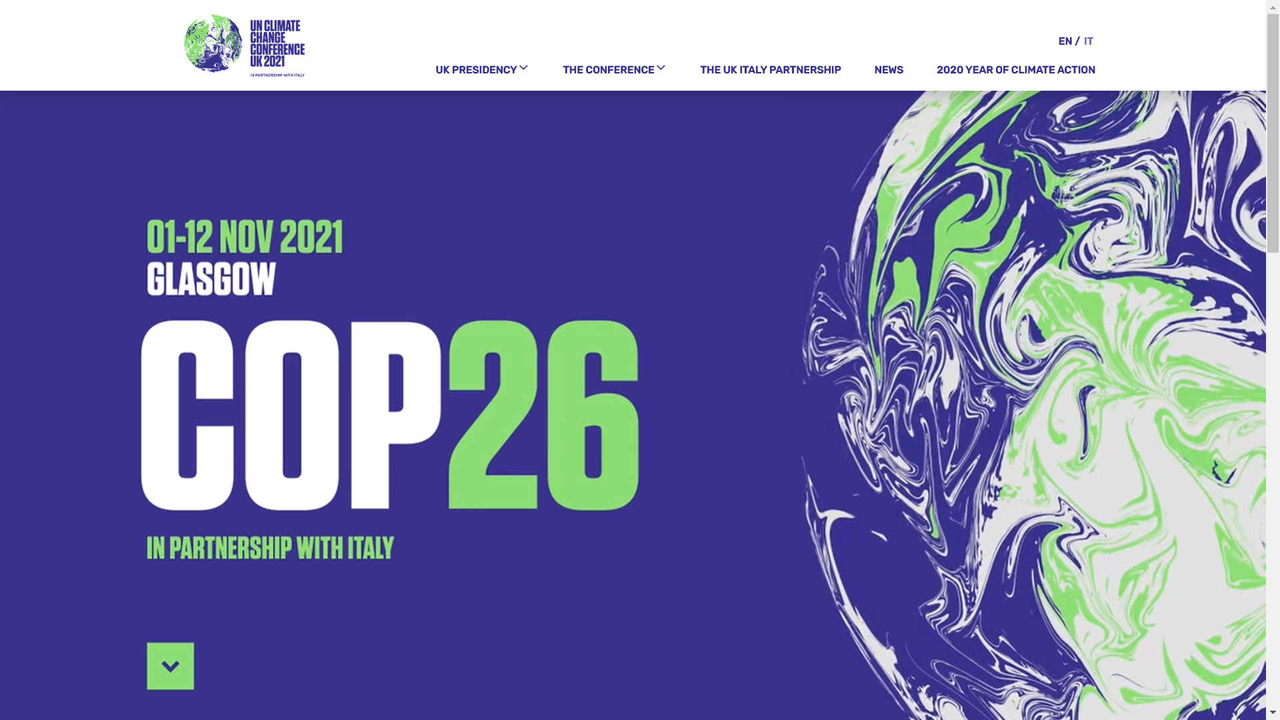 COP is the ‘Conference of the Parties’ and the 2021 meeting in Glasgow this November will be the 26th meeting. They started following UN treaty agreed in 1994.
COP is the ‘Conference of the Parties’ and the 2021 meeting in Glasgow this November will be the 26th meeting. They started following UN treaty agreed in 1994.
We are all aware of the Paris Agreement in 2015, COP 21, at which countries agreed to try to keep global warming down to 2º. They then set up a commission to look at whether 1.5º degrees would make a significant difference, which of course it does. Massively.
Think of global temperature in the way you think about your own body. A one degree rise above 37° and you feel sweaty and uncomfortable; at 39° you’d go to bed; at 40° you’d call the doctor. The Arctic has already risen by 6º. We are at serious risk of becoming a hospital case!
At the last conference Madrid each nation agreed to devise a plan to cut their carbon emissions, committing to ‘Nationally Determined Contributions’. The hope is that these specific and measured contributions will replace the vague promises and commitments of previous conferences and be something that can be fed into climate models to see if they have a chance of delivering net zero by 2050 and just 1.5° of warming.
Sadly, however, a study this year concluded that the rates of emissions reductions need to increase by 80% beyond NDCs to meet the 2°C upper target range of the Paris Agreement, and that the probabilities of major emitters meeting their NDCs is very low, estimating that with current trends the probability of staying below 2 °C of warming is only 5%, which leaves us on a swift course to catastrophe.
To have a chance of surviving on this planet we are going to need to change more than our boilers, cars and holidays. We need fundamental changes in global economics and politics.
A frequent area of contention is between the developed and developing countries. Europe and America have had the benefit of 250 years of fossil fuels. Coal, oil and gas have transformed our lives and raised our standards of living. Developing countries are still have a long way to catch up and don’t have the resources to invest in clean energy technology. How much help are developed countries prepared to give them? Cutting our own overseas aid budget is not going to help.
Meanwhile China, which as a ‘developing country’ at COP 21, exempt from the commitments of Europe and America, stated in January that it planned to peak its emissions by 2030 and reach net zero by 2060. This is a massive step forward, especially if they under-promise and over-deliver, as they often do.
It is worth bearing in mind that we have outsourced many of our emissions to China. Our politicians often claim that we are leading the world and quote 40% as our reduction in emissions. Switching from coal to gas made big difference, but if we count the carbon embedded in all our imports from China, our reduction is a mere 15%. We still need to get our own house in order!
The UK government declared 2020 a "Year of Climate Action" and has recently committed to slash emissions by 78% by 2035. Even more impressively, this figure includes international aviation and shipping. This is an impressive and welcome ambition, and I can’t wait to see what measures are going to be proposed to achieve it!
Setting a target of 2030 for the banning of fossil fuel car manufacture shows how, at no expense to the tax payer, a new industry can be stimulated. All businesses want is a level playing field and such legal action gives them that.
Boris Johnson has said he wanted fighting climate change to be one of his government's biggest priorities and in November launched a ‘ten point plan for a green industrial revolution’ with £12 billion to support it over the next 10 years.
Meanwhile our global emissions continue to rise. From 5 billion tonnes in 1950, 18 billion in 1980, 23 billion in 2000 and 33 billion In 2020. We are still heading in the wrong direction.
COP 26 in Glasgow really is the ‘make or break’ conference that will determine humanity’s survival.
Edward Gildea, Eco Team Leader
The effect of climate change on the Arctic 1979 -2050 (Photos taken by Edward Gildea at the British Museum)
Meditations on the Birth of a Grandson - April 2021
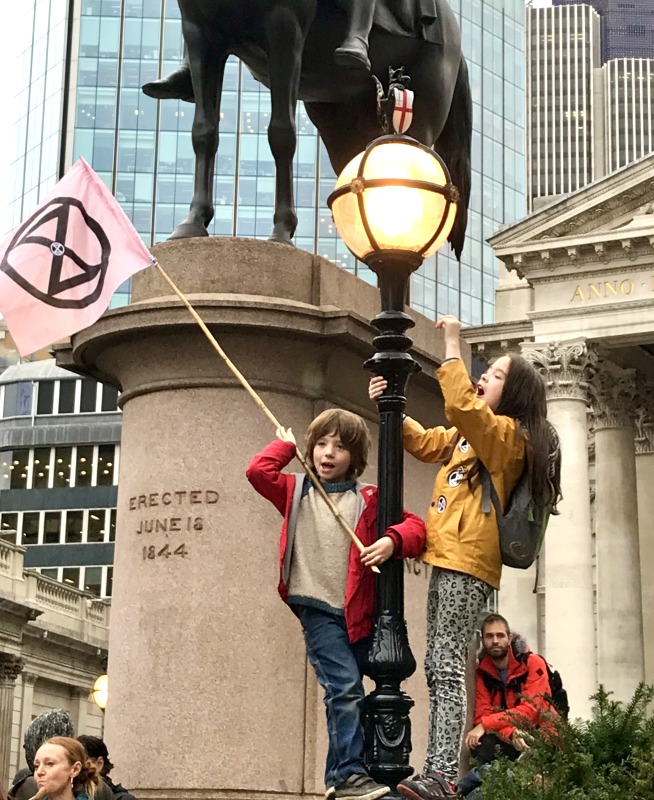 A few weeks ago, I raised a solitary glass of champagne to toast the birth of my fourth grandson. What an amazingly blessed man I am! But within seconds I was choking back tears to think of the appalling legacy I will be leaving him.
A few weeks ago, I raised a solitary glass of champagne to toast the birth of my fourth grandson. What an amazingly blessed man I am! But within seconds I was choking back tears to think of the appalling legacy I will be leaving him.
Even if we manage to reach global carbon zero by 2050, and hold warming to just 1.5 degrees, the planet will be far less hospitable than the one I inherited. Bush and permafrost fires will still be raging, hurricanes will be more frequent, floods common place, prolonged droughts will impact food production and sea level rise will be destabilising vast cities.
It will only be after we reach carbon zero that we will start to remove the trillions of tonnes of CO2 from the atmosphere (we dumped 37 billion tonnes last year alone) and centuries later, the ice sheets might start to reform and the glaciers to recover, delivering their steady meltwater to billions of farmers. Carbon zero is just the starting block for the race our children must run!
Even as we prepare to host COP 26, Rishi Sunak didn’t even mention the climate or ecological crises in his budget. While President Biden has earmarked $2 trillion to finally address climate change, the chancellor prided himself on his £27 billion roadbuilding programme: ‘the biggest ever investment in new roads’ putting the £3-4bn to support the prime minister’s 10-point climate plan totally in the shade.
The government is now only reluctantly reviewing the proposed coal mine in Cumbria, instead of stimulating sustainable jobs there in, for example, Cross Laminated Timber manufacture for a new, green building industry. Or investing in clean hydrogen or electric arc manufacture of green steel, like Germany, to create new jobs in that forlorn industry.
So many exciting possibilities are being ignored!
So what can anyone do that will actually put pressure on a government to take sufficient and imaginative action? The School Strike has been brilliant. It had unarguable logic: What is the point of me educating myself for a planet that will be uninhabitable? It is essentially a protest of self-harm. Historically such actions have been very effective: the Suffragettes’ and IRA hunger strikes, throwing yourself under the king’s horse, the self-immolation of Mohammed Bouazizi which launched the Arab Spring…
It would seem that such actions are going to be all that are left to those of us who want to protest. The proposed Police, Crime and Sentencing Bill will allow police to simply claim any protest is a “public nuisance” or “too “noisy” or “hindering people from getting on with their daily lives” before arresting people and making them liable to a 10 year prison sentence. That leaves precious little scope for protests that will secure news coverage! Did our precious democracy and freedoms evolve without any disruption to people’s lives?
Still, for the sake of my grandsons, it’s a risk I’ll have to take.
Edward Gildea, Eco Team Leader
Being ethical isn’t easy - March 2021
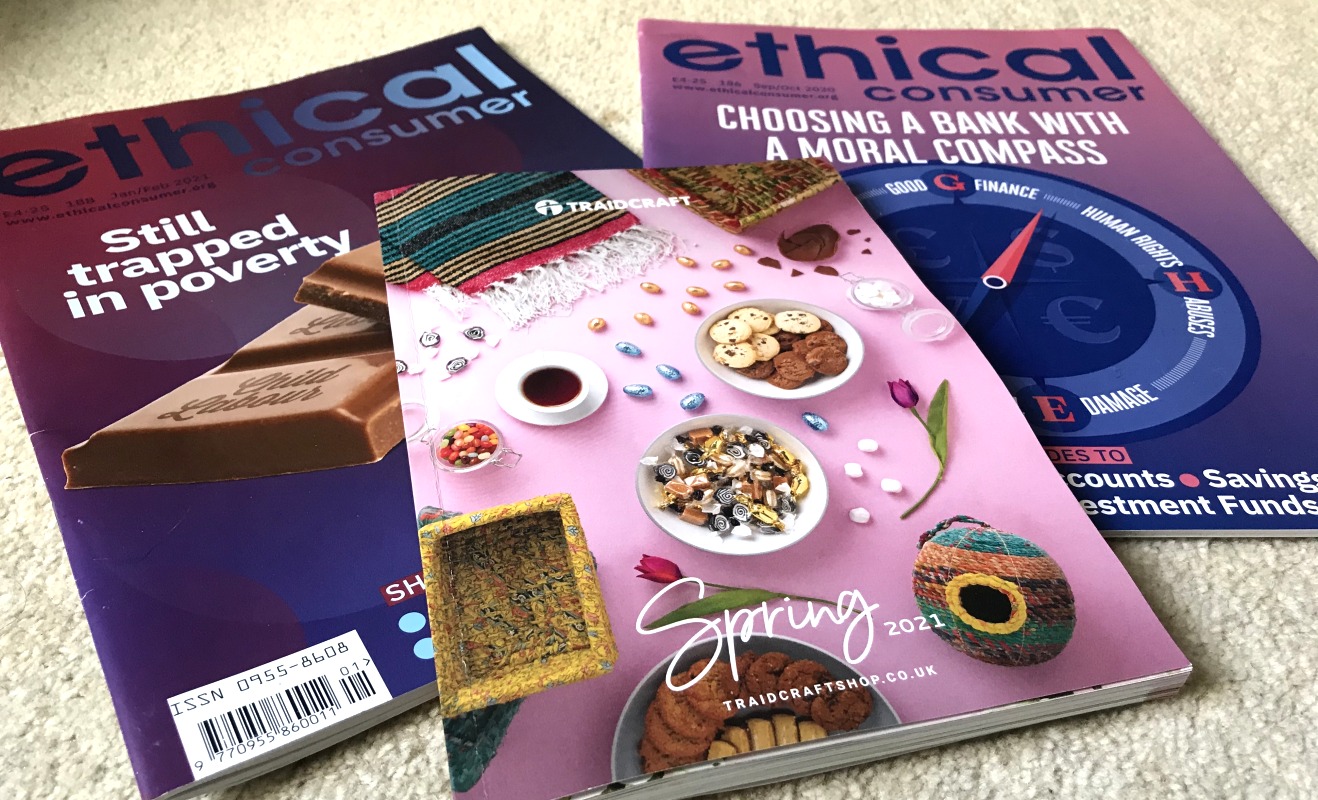 Being ethical isn’t easy, but as Christians, we should try harder than most.
Being ethical isn’t easy, but as Christians, we should try harder than most.
Last month, Uttlesford District Council were put on the spot by their investment in a property that is going to be leased by an American Company with a wide variety of technical products, a significant proportion of which have applications in the arms trade. Did that constitute an ethical investment?
The Investment Board were strongly in favour, as were most councillors, but they were hampered by not having an ethical investment policy. It was certainly an interesting debate and is worth watching on-line. One of the more shocking contributions was from a councillor who said ‘We all buy stuff from China and Amazon every day, who have no ethics…’ and while his argument petered out, the implication was clear: We are all unethical anyway, so why worry about connections with the defence industry?
This statement was particularly ironic because the council had just unanimously signed up to the seven Nolan principles of public life, the last of which is leadership. To my mind leaders hold themselves to the highest possible standards in order to set an example that is worth following.
A great many of us actually do try to be ethical. We avoid using Amazon and think twice about the origins of the products we buy. I was once invited to a dinner with friends at Ask. I agreed enthusiastically but wanted a moment to check Ask out on Ethical Consumer. Ethical consumer is an organisation that rates businesses against dozens of criteria covering Environmental issues, Human and workers’ rights, Humane concern for animals and Politics: their use of tax avoidance strategies. Out of a possible 15 points, (with 5 a possible bonus points for sustainability) Ask, or at least their parent company, scored just 4 points, so I called my friends back and asked if we could go somewhere else! We had a delightful evening in a local, independent restaurant which I suspected did not use an offshore bank account!
Some decisions can easily become habitual. It’s easy to avoid Amazon because we have a great, friendly bookshop here. Waitrose (4.5) and Aldi (3) beat ASDA which scores 0/20 and Tesco which only just gets off the ground at 1/20. That suits us in Saffron Walden! Being ethical about coffee shops is also easy: we have so many characterful independent coffee shops! Costa coffee (0.5/20) and Starbucks (1.5/20) don’t get a look in from me. Caffe Nero is better at 5.5.
I’m afraid that I use an Apple computer and phone, because they teach you how to use their products and help out remotely when I am stuck. They have appalling ratings for tax avoidance and environmental reporting, but do well in not sourcing conflict minerals and have a good toxics policy. Overall they score 6.5, which isn’t bad.
In terms of our climate and biodiversity crises, the ethics are now very clear. Diet plays a huge part. I call myself an ‘antelopian’: I eat meat about as often as I could have caught an antelope, in true hunter-gatherer style! Nuts, fruit, roots and berries in season (from Liz’s local veg stall near Market Row), with meat as a very special treat. As I get older the antelope seem to be getting harder to catch! They certainly don’t come from Texan factory cattle ranches and I don’t want to be complicit in the destruction of the Amazon rainforest for ranching or soya animal feed.
It’s harder to be sure that your pension fund is ethical. It is likely to include investments in oil and gas industries and others, like Rolls Royce, with connections to defence. But if you can switch to a fossil free and ethical pension, now is probably a good time. I divested my pension about 5 years ago, and it feels as if I am riding a bow wave of ethical, carbon free investment!
We have immense power as consumers. We effectively cast a vote with every purchase. So as Covid restrictions are eased, the shops re-open and we re-discover the joy of meeting friends in our local shops, or plan our longed-for holiday, we all have the opportunity, as Christians, to show true, ethical leadership and send a message around the world.
Edward Gildea, Eco Team Leader
Article by the Bishop of Norwich - Graham Usher on the C of E website - 25 February 2021
Nobody can deny that climate change awareness has grown significantly over the past years. It is now no longer a niche interest, but everybody’s issue, writes The Bishop of Norwich, Graham Usher, following his appointment as Lead Bishop for Environmental Affairs. Courageous decision-making is needed to tackle climate change he says.
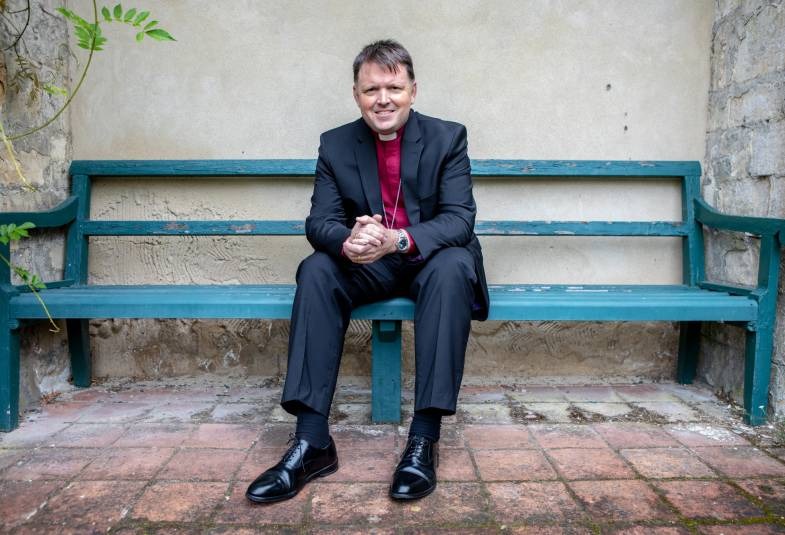 Left - Graham Usher, Bishop of Norwich, who has just been appointed as lead bishop for Environmental affairs. Click here to read his article on the Church of England's website.
Left - Graham Usher, Bishop of Norwich, who has just been appointed as lead bishop for Environmental affairs. Click here to read his article on the Church of England's website.
One Planet Economics - February 2021
They kept coming, witness after witness, to tell the inquiry that the economy of our region depends on the growth of Stansted Airport. As if Uttlesford District Council were trying to close the airport, rather than put a cautious limit on its growth to 35 million passengers each year rather than allow the 43 million that the airport wants.
No one was asking for job cuts. No one was trying to reduce the economy. In 2019 there were 28 million passengers, so there was existing permission for 21% growth even after we have recovered from Covid!
But there is a deeper question here. Do we need … can we afford, constant, unlimited growth? Our current economy seems to require 2.5% growth in GDP every year. It sounds modest but means a doubling of production and consumption by 2050 and a quadrupling by 2077. Since CO2 emissions, material consumption and waste go up at the same rate, that means our planet will have to double and quadruple likewise!
Sadly, we don’t have an infinite planet that can support infinite growth and absorb infinite pollution. We have just one, perfect, delicate and very small planet. We need to adjust our economic model to one that accepts that we have only one home, one planet: One Planet Economics.
Mark Carney’s Reith lectures pointed out the vast gulf between our Values and the monetary value we put on things. We value our nurses, care workers, midwives and refuse collectors, but we pay them very little compared to our footballers, celebrities, city bankers and CEOs. Why do we do that? Maybe we have been measuring the wrong thing.
Gross Domestic Product is ‘the monetary measure of the market value of all the final goods and services that are bought by the final user’. It is NOT a measure of any increase in jobs, of any reduction in poverty, of social justice, of any improvements in health or any business success. Indeed, it seems to correlate much more closely with the growing inequalities of rich and poor, monopolies that swallow smaller businesses, the pressure to drive down wages and over consumption.
We thought economic growth would ensure that things would be better for our children, but we now have a generation who, even before the pandemic struck, were struggling to get decent jobs, to hope for a secure future, let alone buy a home! Social mobility has ground to a halt and life expectancy is beginning to fall for the first time in some parts of the country!
Social inequalities are increasing at break-neck speed in fact. Oxfam’s report, The Inequality Virus, tells us that the combined wealth of the world's 10 richest people rose by £540 billion during the coronavirus pandemic; Jeff Bezos made a record $13bn in just one day and FTSE 100 chief executives after the first 3 days’ work in January had earned above the average wage of £29,559. I wonder how they will get through the eye of a needle!
At the other end of the scale, those working in the gig economy or on zero hours contracts are struggling to feed their families. The ‘trickle down’ effect just doesn’t seem to be working.
Maybe our economy would function better if we started measuring the things we have learned to value during lockdown: our health, happiness and wellbeing; the people who care for us and teach our children; the beauty of nature and of clear skies; community. The Sustainable Development Index does roughly that: it measures income, health and education within the scope of a single planet.
I think Jesus would approve.
Edward Gildea, Eco Team Leader
Hope versus Optimism - January 2021
As a new year dawns, I wonder how hopeful we all feel about the future….
The vaccine programme is underway, but we must still wait and see how Brexit works out! Sadly, though, I don’t hold out much hope for our future on this beautiful planet. When Prince William said that ‘We should leave the world in a better condition than we found it,’ he was being hopelessly optimistic. There is absolutely no way that, when I die, I will be leaving the world in anything like as good a condition as I found it.
Talking to a group of coppicers in November, I was asked whether I felt hopeful and I had to admit that I don’t. Mankind has set in train a series of vast ‘positive feedback loops’ which we have no means of reversing in the course of this century. Nature normally works with negative feedback loops which balance each other out: The number of wildebeest in a herd grow, so the pride of lions succeeds in killing more and the pride grows until the wildebeest start to diminish, so the pride of lions makes fewer kills, gets smaller, allowing the herd to grow again, and so on.
However, the frightening bush and forest fires in California and Australia, caused by rising temperatures, simply put immense tonnages of CO2 into the atmosphere making those fires ever more likely. The vast fires in Siberia, where summer temperatures were 10 degrees above average, are melting the permafrost, releasing huge amounts of methane. At 80 times more potent as a greenhouse gas for twenty years this makes the fires expand further and further. The rapid melting of the polar ice cap means that far fewer of the sun’s rays are reflected; instead they are readily absorbed by the deep blue arctic ocean which warms far faster and causes even more ice to melt.
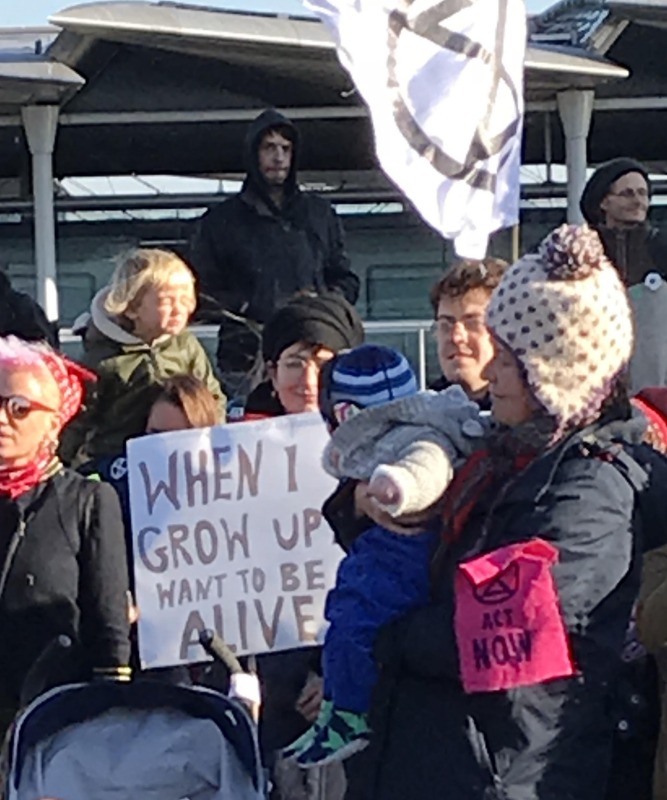
Photo Edward Gildea Blackfriars Bridge 2018 |
None of these positive feedback loops will begin to be reversed until we reach carbon zero in 2050 and then start removing some of the 30 billion tonnes of greenhouse gases we put into the atmosphere every year. Sadly, I am not the only one losing hope. A survey conducted by Yale-NUS college found that 92% of those surveyed had a negative view of the future. One woman said, ‘I can’t in good conscience bring a child into this world and force them to try to survive in what might be apocalyptic conditions.’ Another said, ‘I regret having my kids because I am terrified that they will be facing the end of the world due to climate change.’
These are heart-rending sentiments. But there is a paradox here: for all my lack of hope, I am still optimistic. These immense disasters are man-made and man is beginning to take steps to avert the catastrophe. The Reith lectures by Mark Carney demonstrated how the financial world has begun to take note, shifting its investments into more sustainable businesses and devising ways of promoting ecological responsibility in the ways markets work.
The outcome of the US elections is a game-changer and China’s decision to become carbon neutral by 2060 is momentous. Agreed, they are still investing massively in coal in order to produce all the consumer goods the western world wants at the prices we want to pay, but they are world leaders in clean energy technology manufacture, and one benefit of a dictatorship is that change doesn’t get slowed down by democracy!
At home, our Prime Minister has just budgeted £14bn to fund his ten point plan, and while that is dwarfed by the £43bn being spent to cut journey times from London to Birmingham by 20 minutes, it is a very welcome beginning. The radical new Agriculture Bill also gives hope that we can begin to transform unsustainable farming practices, and maybe even Europe will follow!
So there is room for optimism, even for the hopeless!
Edward Gildea, Eco Team Leader
The Answer Lies in the Soil! November 2020
St Mary’s Church have been awarded the ECO Church Bronze award for helping to preserve the environment in practical ways.
Recycling, twinning toilets to support sanitation in Africa and investing church savings in carbon free, ethical funds had their role to play, but much of our work during lockdown has been focused on encouraging biodiversity, pollinators and wildlife in the churchyard.
Eco Church is one way in which the church shows leadership in the world, but we have much more to do if we are to reach the General Synod’s ambitious target to become carbon neutral by 2030!
Our aim must be to transform lifestyles to something cleaner, more connected to nature and healthier. Biodiversity mustn’t stop in our churchyards and gardens; it must extend to the food we buy and the sort of agriculture we choose to support.
Last month the UN summit on biodiversity called upon leaders to make a 10 point pledge. It included commitments to:
-
Move towards a resource-efficient, circular economy, nature-based solutions and ecosystem-based approaches;
-
Shift land use and agricultural policies away from environmentally harmful practices and promoting sustainable land and forest management to reduce habitat loss;
-
Mainstream biodiversity into cross-sectoral policies at all levels, including food production, agriculture, fisheries, energy, tourism, infrastructure and extractive industries.
Sadly the US, Russia, Brazil and Australia did not sign up, and I question whether we should enter into trade deals with them until they do. Not least because our farmers need a level playing field.
Boris Johnson, however, took the pledge saying: ’The British Government is absolutely committed to tackling biodiversity loss.’ He called for ‘ambitious goals and binding targets ….Not just good intentions but real action.… Right now. We can’t afford dither and delay.’
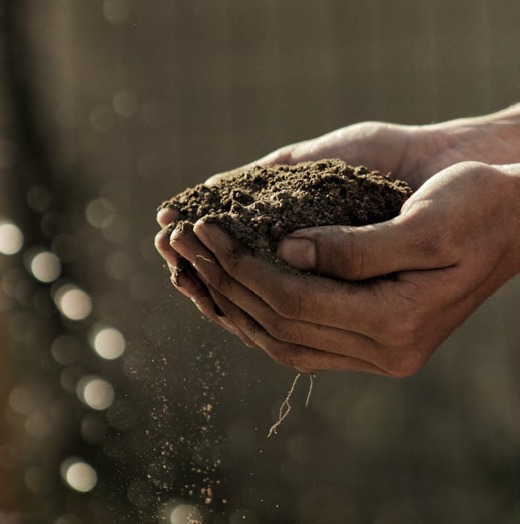
Photo by Gabriel Jimenez on Unsplash
|
We must hold him to that! We have a great opportunity in the Agriculture Bill to support Regenerative Agriculture and Permaculture, but it needs to include serious goals and targets on:
-
soil health, carbon sequestration and water retention
-
regenerating the micro-organic life in our increasingly barren soils
-
closing the loop of massive food waste into compost returning organic matter to the soil.
If you used to listen to Round the Horne in the sixties, you will remember Kenneth William’s colourful rendition of Rambling Sid Rumpo with his constant refrain: ‘The Answer Lies in the Soil!’ We are about to discover that he was absolutely right!
Thanks to conventional farming practices, nearly half of the world’s most productive soil has disappeared in the last 150 years. In the US alone, soil on cropland is eroding 10 times faster than it can be replenished. If we continue to degrade the soil at the rate we are now, the world could run out of topsoil in about 60 years, and with it our ability to filter water, absorb carbon, and feed people.
Our economic model of intensive tilling, synthetic fertilizers and pesticides have stripped the soil of the miraculous complexity of nutrients, minerals and micro-organisms that support healthy plant life. We lie at the heart of an agricultural community. Let’s encourage the change here.
Edward Gildea, Eco Team leader
Bronze Eco Church Award - October 2020
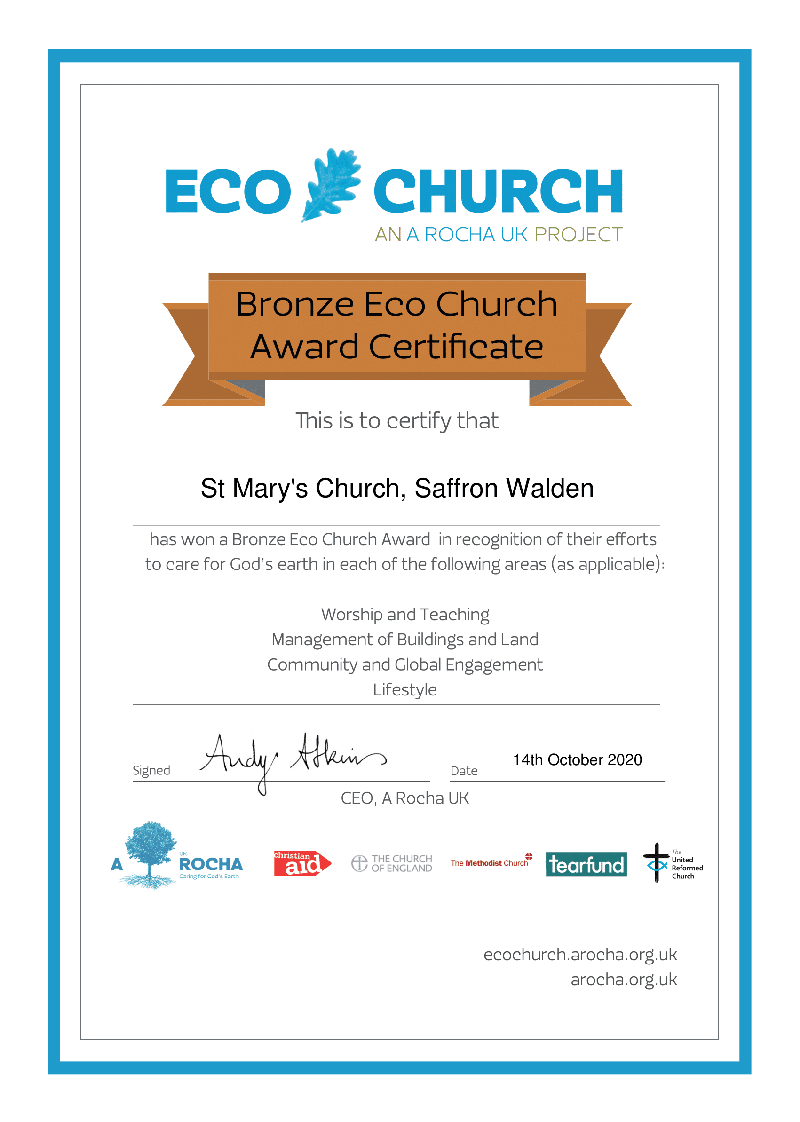
St Mary’s Church are thrilled to have been awarded the Bronze Eco Church award. Eco team leader Edward said, “We are particularly pleased that, in a time of Covid and lockdown, we have been able to stay active, particularly in the churchyard and with local environmental organisations. We can’t wait to get stuck into the Silver Award, taking steps that are vital to us all!"
Congratulations!
The People have Spoken! October 2020 - By Edward Gildea - Eco team leader
In September the UK’s first ever People’s Assembly on Climate change published a ground breaking report. In response to pressure from Extinction Rebellion, six Parliamentary Select Committees joined together to set up the assembly. It included people from all walks of life, balanced in terms of age, gender, ethnicity, education, where they lived and their level of concern about climate change. It even included climate sceptics.
Their task was to determine how the UK should meet its target of net zero greenhouse gas emissions by 2050. They discussed the topics with experts and each other before reaching their conclusions. You can read the full report on https://www.climateassembly.uk/report/
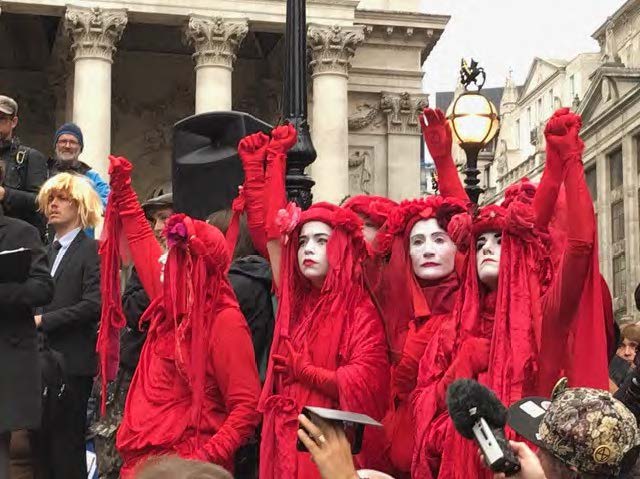
London’s Extinction Rebellion Protest photo: Edward Gildea
|
Their recommendations included a ban on the sale of new petrol and diesel cars by 2030–2035 while more quickly ending the sale of the most polluting vehicles, with grants enabling businesses and people to buy low carbon cars.
They wanted better public transport, with government investment in low carbon buses and trains, adding new bus routes, more frequent services and making public transport cheaper. 80% of assembly members ‘strongly agreed’ or ‘agreed’ that aviation taxes should increase as people fly more often and as they fly further with the airline industry required to invest in greenhouse gas removals.
In homes, they suggested a ban on sales of new gas boilers from 2030 or 2035 with reductions in VAT on energy efficiency and zero carbon heating products.
They wanted labelling food and drink products as well as other products and services providing information about the carbon emissions involved in each product, so that we can each take responsibility as consumers.
In agriculture they suggested the introduction of low carbon farming regulations, making farm subsidies conditional on low carbon practices and biodiversity, with farmers paid to use their land to absorb and store carbon by restoring peatland, planting trees and improving soil health.
Despite this achievement, the reputation of Extinction Rebellion fluctuates. They were bitterly criticised for attacking the freedom of the press when they frustrated publication of the Sun and the Daily Mail for 12 hours on 5th September, with some politicians feeling that they should be regarded as a terrorist organisation.
I don’t agree with everything XR do, but I thought it was a pretty well targeted action. Ever since reading Milton’s Areopagitica, I have regarded freedom of the press as being fundamentally about the freedom to ‘speak truth to power’. But what should you do when the press is owned by the powerful? There is an immediate conflict of interest and with powerful men, such as Rupert Murdoch, who is a climate change denier.
The majority of our media is amassed in the hands of five people with powerful vested interests and deep connections to fossil fuel industries, and all too often their freedom includes the freedom to print stories that bear little relationship to the truth. Milton’s argument was about freedom of the Truth. We are sometimes hard-pressed to find it!
The BBC Sounds podcast ‘How they made us Doubt Everything’ is well worth listening to!
Edward Gildea
Update on our Churchyard initiatives - 24 Sept 2020
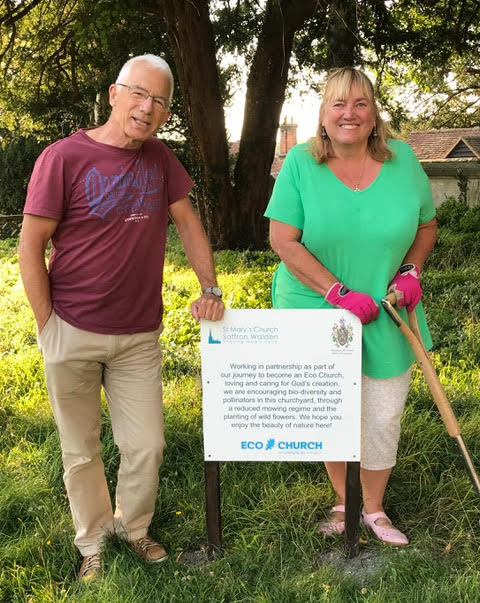 The Town Council have set up two notices to explain what is happening in our churchyard.
The Town Council have set up two notices to explain what is happening in our churchyard.
The sign says ‘ Working in partnership as part of our journey to become an Eco Church, loving and caring for God’s creation, we are encouraging bio-diversity and pollinators in this churchyard through a reduced mowing regime and the planting of wild flowers. We hope you will enjoy the beauty of nature here!
Pictured are Eco team leader Edward Gildea and passionate environmentalist, Jackie Damary Holman.
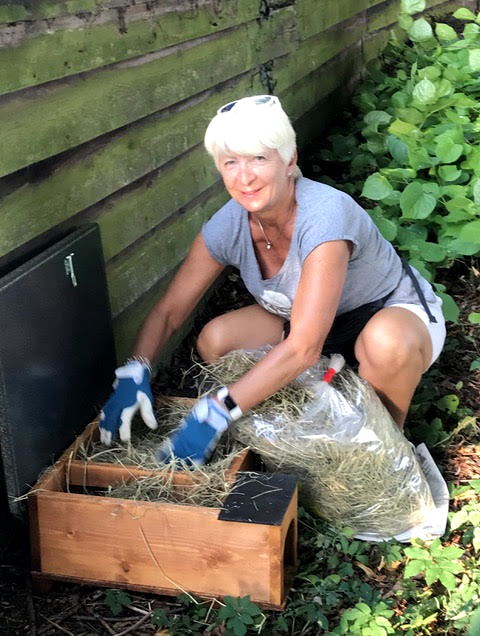
Homes for Hedgehogs
Last week we enjoyed a visit by Sheena Capon, who runs the Hedgehog Hospital at Shepreth Wildlife Park who advised us on the siting of our two new hedgehog homes. Here she is filling them with hay. They like their homes to be quite densely packed with hay, apparently! We look forward to some residents when the cold weather comes and maybe some babies in the Spring!
Let’s grasp the scale of the Challenge. September 2020 - By Edward Gildea - Eco team leader
532 billion tonnes of ice were lost from Greenland in 2019 – the most since records began. It is an incomprehensibly huge figure.
That equates to about a million tonnes per minute; enough to fill seven Olympic-sized swimming pools per second. Mind boggling!
Just a year ago it was predicted that land that is currently home to 300 million people will flood at least once a year by 2050 unless carbon emissions are cut significantly and although this figure was a revision of the previous estimate of 80 million, it looks as though it will have to be revised upwards yet again.
Mankind has set something in motion over the last 200 years which seems unstoppably immense, but stop it we must! I imagine that when such vast populations lose their homes, livelihoods and lands, societies will become extremely unstable, politics polarized, migration will accelerate and conflicts for resources will become intense.
Meanwhile the crisis is accelerating. Temperatures in the Arctic are rising at double the rate of lower latitudes and the 2019 loss of Greenland ice was double the previous annual average of 255 billion tonnes. Almost that amount was lost in July 2019 alone.
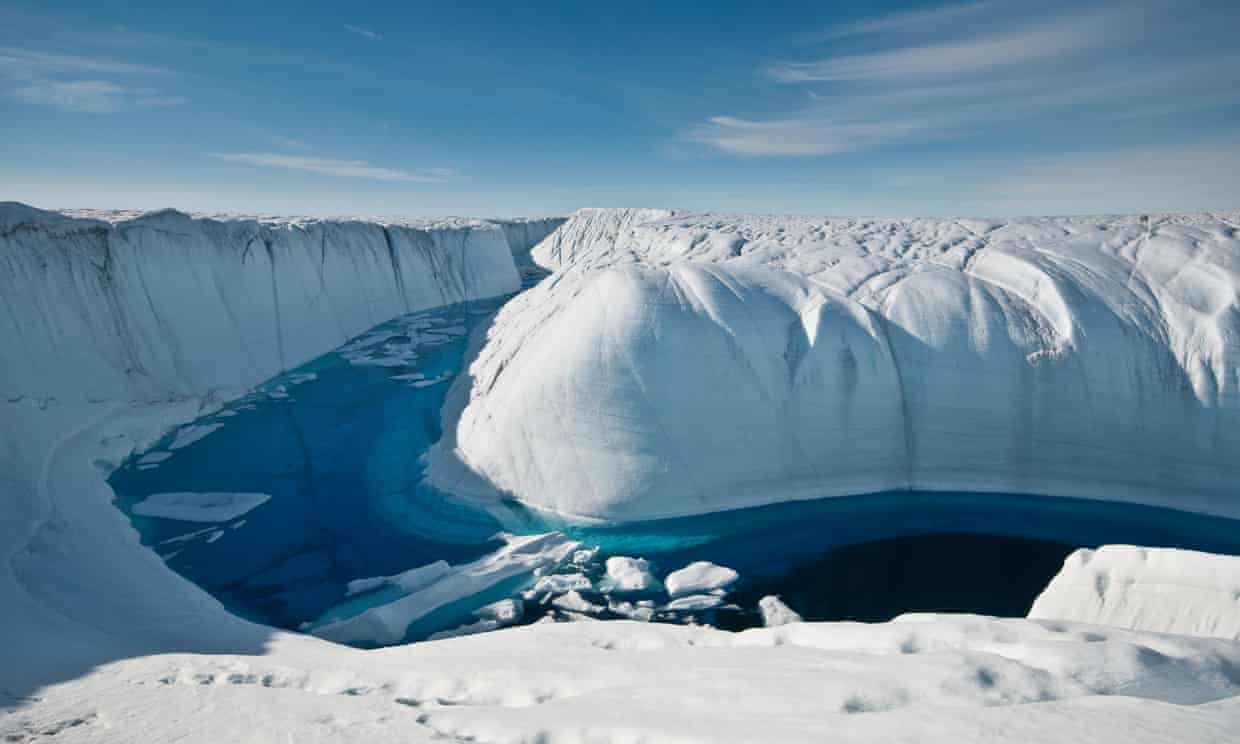
A meltwater canyon on the Greenland ice sheet. Photograph: Ian Joughin - University of Washington/PA
|
It is scientific data like this that often brings me to the point of despair. Greta Thunberg criticized world leaders for failing to achieve any progress during the two years since she started her school strike. But things have started to change. A UDC working party zoom meeting I attended in August discussed the issues of the climate and biodiversity crises in terms that would have been unthinkable two years ago. The BBC is now covering the issue without feeling that they have to wheel out a climate change denier for the sake of ‘balance’ and even Google has stopped funding organizations that deny or work to block action on the climate crisis.
Most of all, each and every one of us is directly experiencing the effects of extreme weather events, even in our most benign and temperate location on the planet. The trouble is that we keep getting distracted by issues that seem more immediate and acute: whether by Brexit or the coronavirus, which has set the COP 26 Climate conference in Glasgow back a year.
It would help if we started to see the interconnectedness of all these things. At a UN summit on biodiversity, scheduled to be held in New York in September, scientists are to warn world leaders that increasing numbers of deadly new pandemics will afflict the planet if levels of deforestation and biodiversity loss continue at their current catastrophic rates.
There is apparently now clear evidence of strong links between environmental destruction and the increased emergence of deadly new diseases such as Covid-19. Rampant deforestation, uncontrolled expansion of farming and the building of mines in remote regions are creating a ‘perfect storm’ for the spillover of diseases from wildlife to people.
Our behaviours are creating these problems, so it must equally lie in our power to put things right.
Let’s not save the Planet. July 2020
By Edward Gildea - Eco team leader
I disagree with the concept of ‘Saving the planet’. It is dangerously misleading.
It implies that we are greater than the planet and that, if we are altruistic and generous, we might just condescend to save it, as we might try to save giant pandas or greater crested newts.
I imagine the mindset stems from Genesis when God conferred on man ‘dominion… over all the earth… to replenish the earth and subdue it.‘ I have always felt uncomfortable about that dominion until it was pointed out to me that a more accurate translation from the Hebrew would be that God conferred ‘responsibility for the earth’. For surely any good ruler thinks not in terms of power, but responsibility?
The fact is that the planet will be fine. It will continue spinning on its axis every 24 hours and around the sun every year and it will stay perfectly in balance with itself. The problem is that man’s impact in this era, the anthropocene, is changing that balance dramatically and making the planet inhospitable to us.
What we should be doing is attempting to save ourselves… save ourselves by paying more attention to our only home so that it is maintained in the favourable balance that gave us life in the first place.
So why hasn’t self interest kicked in by now? Why are we so reluctant to preserve ourselves and protect our children? Isn’t that our primary instinct?
In 2019 Oxfam reported that just the 26 richest billionaires own as many assets as the 3.8 billion people who make up the poorest half of the planet’s population and the number is falling steadily, from 43 billionaires in 2017.
Meanwhile just 100 companies in the world have been responsible for 71% of the global GHG emissions since 1998, and a mere 20 fossil fuel companies can be directly linked to more than one-third of all greenhouse gas emissions in the modern era.
So it looks as though a very small handful of very powerful people are working according to their own self-interest and taking the rest of the population of the world along with them. Presumably they are the billionaires and corporations who own most of the media outlets, contribute most to politicians’ election expenses, lobby most effectively and stimulate economies based on endless consumption through their advertising and entertainment operations.
So how do we break out of our servitude to these billionaires and corporations? At what point are we going to create a sustainable economy based on social justice and humanitarian equity?
An inspirational Oxford economist, Kate Raworth has a thrilling vision of a sustainable, universally beneficial economy. It will look like a doughnut! A creative, regenerative, distributive economy that works within the planet's ecological limits. Do listen to her TED talk and find out more about the doughnut! https://www.youtube.com/watch?v=Rhcrbcg8HBw&feature=youtu.be
Our Eco Churchyard
The Eco Church has been working in the churchyard for several months, planting wild flowers and encouraging biodiversity. They have cut over 100 circular turfs and sowed wildflower seeds which are coming along very well. Many thanks to Edward Gildea for watering the new seedlings during our dry spells. Below are some photos of flowers currently growing in the churchyard. Not the new seedlings yet, but the flowers that have been thriving because of our new reduced mowing regime which the Eco Group had requested. June 2020
Carpe Diem! June 2020
By Edward Gildea - Eco team leader
It has been a joy to see clear, unpolluted blue skies; to hear birdsong rise above the traffic noise and to connect with the beauty of nature on our own doorsteps. And while we’ve been doing that, daily greenhouse gas emissions (GHGs) dropped 17% in April!
They may well end the year 8% lower, but sadly this just goes to show that the abandonment of cars and air travel is not going to be enough to solve the climate crisis. Even if we continued this painful limit on our lifestyles, we will still have more than 90% of the carbon reduction to achieve to be on track to our Paris target.
Nevertheless, this is a unique, once-in-a-pandemic opportunity for governments to steer their economies away from carbon dependency at a lower financial and social cost than ever before. As they spend trillions getting their economies going again, they have the opportunity to invest in climate friendly infrastructures and sustainable businesses for the future.
There is a historic precedent for this. Amazingly, it was while WW2 was still raging that a new world was being mapped out. There had been a resolve to make ‘a world fit for heroes’ after the Great War, but it never happened. This time things would be different. In 1942, William Beveridge published a report describing ‘universal provision’, which was to become our welfare state and beloved National Health Service.
In 1944 our own MP, Rab Butler passed the Education Act, which abolished fees for all state secondary education and introduced grammar school which offered social mobility to the children of factory workers and miners for the first time.
It’s not as if we could afford it then. The war had bankrupted us and the USA was reluctant to extend us continuing peacetime aid. They gave the Atlee government a hard time of it, but there was a powerful conviction that we couldn’t afford not to invest in a better future.
It has shocked us that global finances, economies and businesses turned out to be defenceless against one microscopic virus. Our hubris has led us to believe that science and technology would prevent such catastrophes, and no doubt they will eventually, but not before irreparable damage has been done and lives lost.
Both the European Bank for Reconstruction and Development and the IPCC (Intergovernmental Panel on Climate Change) have warned that “global warming will likely accelerate the emergence of new viruses.” There is a connection between this pandemic, biodiversity loss and our relationship with the whole of natural world. If we are to prevent more pandemics, we need to “tilt to green”.
The question facing us all now is whether there is the political will for that. Do we want the extremes of wealth and poverty that have been exposed by this crisis to continue? Do we want rush back to the same levels of pollution and fossil fuel dependency?
Or are we ready now for the fundamental changes in our economy that will give our children some hope of an inhabitable planet? It is our children who will be footing the bill for this pandemic for the rest of their lives, after all.
So this is what an emergency looks like May 2020
By Edward Gildea - Eco team leader
So now we know what an emergency looks like. Government takes swift and decisive action; they listen to the scientists, basing their policies and strategies entirely on the science; they pass swift laws that compel the public to radically change their lifestyles; they scrap the budget they had planned and break all their fiscal discipline, spending countless billions of pounds in the attempt to save lives and safeguard a future economy.
Yet in May 2019, after passing a motion of Climate Emergency, none of these things happened.
After decades of equivocation, lip service is being paid to the scientists, but the few policies set out in their manifesto do little to enable us to reach our carbon zero target; the budget offered little incentive to clean energy and nothing to promote any changes of lifestyle amongst the electorate; there are no daily, weekly, or even annual briefings to inform the public of what progress we are making towards our targets; no charts, no graphs, no ministers held accountable on prime time television…
So what is the difference? The pandemic is sudden, acute and threatens life over a period of days and months. A vaccine is likely within a year or a few months, after which we can return to normal.
Global heating develops over years and decades; the lives lost are mostly a long way away and we feel insulated from them, but there is no technological quick fix and there will be no ‘normal’ to return to if we don’t take far reaching actions now.
The secret of beating the coronavirus was listening to the science from the outset; taking swift and dramatic action; showing leadership to persuade the public to make immense sacrifices in the short term. The costs in lives, money, wrecked businesses and unemployment are far greater if our leaders fail in this.
The secret of halting the destruction of our environment would have been to listen to the science 25 years ago; to have taken steady, incremental action from that time, led by the science; and to have incentivised the public to switch to more sustainable lifestyles for the benefit of their children.
So why has there been this massive difference? Maybe because there is no powerful lobby speaking up for the virus, while there has been a very powerful lobby, deeply invested in fossil fuels, that has manipulated our politicians and controlled much of our media.
The one thing both the virus and environmental catastrophe have in common, though, is that our children will be paying the cost.
All things bright and beautiful - April 2020
By Jackie Damary-Homan from our Eco team
"All things bright and beautiful, all creatures great and small, all things wise and wonderful the lord God made them all."
This famous hymn written by Cecil Frances Alexander in 1848 shows how she appreciated our natural world. We too must learn to love and care for the special world God created.
We are all taking time to stop and wonder at God’s creation in its amazing diversity. Our gardens have become a joyful sanctuary and a welcome relief from our anxiety. Prayer and contemplation in natural spaces is good therapy, helping reduce our fears and bewilderment of Covid 19 which has altered our world as we know it. We marvel at the amount of blossom, buzzing with bees and unfurling vibrant green leaves bursting forth from the tree branches. Our hearts joyfully see the mauve haze of masses of bluebells carpeting the ground. Miraculously these flowers return faithfully each spring, reminding us of God’s faithfulness to us. His love is constant whatever is happening in the world. We in return must have faith, trust and love in him.
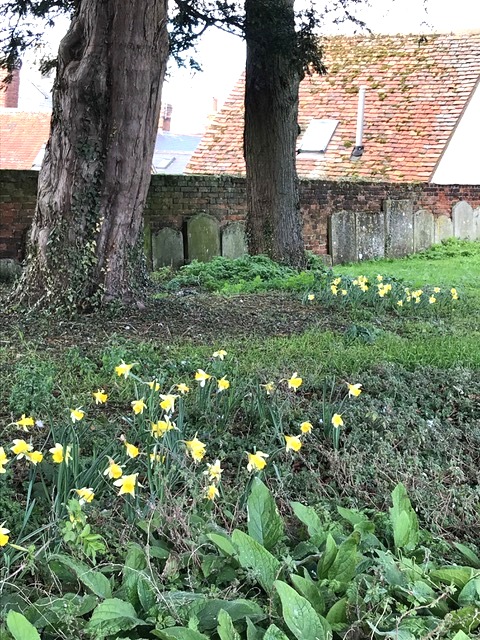 As humankind is in this strange lockdown world, nature has taken this opportunity to flourish. This is uplifting to see. The birds appear to be singing more loudly, or is it that their sweet tunes are more noticeable as we take time to listen? As fewer cars are on the road, air pollution levels have dropped. Fewer planes flying across the skies have already proved what climate change scientists have been saying about carbon emissions and have noted that air quality has improved. Strange sightings of nature breaking into communities have been seen around the country, including sheep roaming down once busy streets in Oxford! I myself had a surprise with a grass snake, never seen before, taking up residence in my pond.
As humankind is in this strange lockdown world, nature has taken this opportunity to flourish. This is uplifting to see. The birds appear to be singing more loudly, or is it that their sweet tunes are more noticeable as we take time to listen? As fewer cars are on the road, air pollution levels have dropped. Fewer planes flying across the skies have already proved what climate change scientists have been saying about carbon emissions and have noted that air quality has improved. Strange sightings of nature breaking into communities have been seen around the country, including sheep roaming down once busy streets in Oxford! I myself had a surprise with a grass snake, never seen before, taking up residence in my pond.
We do not know why flood, fires and now pestilence have been sent to the world. Is it a warning for man to repent for the evils, greed, materialism, corruption and immorality of recent years? When this uncertain time passes can we move forward to being a fairer, kinder, more thoughtful, compassionate society? A less selfish future in all aspects of our lives, our community, our country and the world? We have to hope for a positive future with the Lord at the centre of everything.
If you wander into our churchyard we hope you’ll see changes too. Our newly planted primrose and cowslip bank, like us, might be struggling to survive but the cowslips are seeding so this cheerful yellow bank should come up again next year. Whilst socially isolating, pockets of wild flower seeds have been planted in the corners of the front lawn. We are hoping for a colourful show this summer. This is part of the plan for creating greater biodiversity, encouraging more insects and pollinators, small mammals and birds to bring more life into St Mary’s grounds. Why not let part of your own lawn grow tall, allowing nature free reign too?
I believe all this is a sign that we must respect God’s world, that our natural world is God’s creation to be remembered as such and be cherished. Humans are mere custodians of the planet and we are surely being shown that man is not invincible and certainly not in control. Our world is God’s world, he is in control and his WILL be done.
The hymn ends “He gave us eyes to see them, and lips that we might tell, how great is God almighty who has made all things well.”
From St Mary's Parish News - May 2020
Sharing a platform with Bishop Stephen
At the start of Lent, before the coronavirus put paid to everything, I was invited to speak at St John’s church, Colchester, alongside Bishop Stephen, the next Archbishop of York, and the Rev James Gilder.
It was part of the diocesan Lent talks on the Environment and the theme on this occasion was Water.
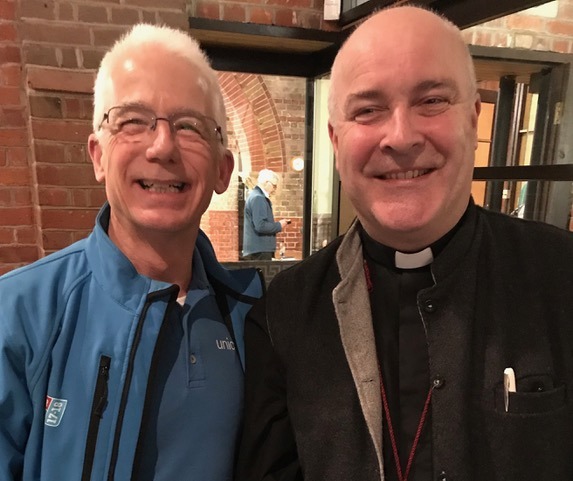
Edward Gildea and Bishop Stephen
|
The Bishop spoke most powerfully and movingly of his experiences in our sister diocese in Kenya; of the drought there: the failing crops, the dead and dying animals and the children holding out plastic bottles, begging for water. He asked: ‘Have you ever been thirsty? I mean, REALLY thirsty?’ The nearest he had come to it was walking with his wife in southern Spain. They had set off on a six hour walk, each thinking that the other had packed the water bottle. At a point of no return they realized that neither had, and after ‘a bit of a matrimonial’ reconciled themselves to completing the walk without water.
They were comforted, of course, but the knowledge that there would be fresh, cold water – even beer – at the end of their walk. But what must it feel like if there was no such prospect day after day, and any water there was would be stagnant and disease ridden? It was a sobering thought.
James Gilder spoke of his aquaponics project: of how fish and crops can be grown in an enclosed system in which water and waste is circulated in a condensed ‘circle of life’ to ensure food while using minimal supplies of water and fertilizer. He is taking his project out to Africa to help alleviate the lives of those who are suffering the worst effects of climate change.
My own contribution was very different: it was about salt water and vast oceans of it!
The trouble with it, though, is that it is too hot! Having sailed across almost all the oceans of the world, I have ended with a paradoxical sense of how very small the planet is, even though it feels huge and frightening at times; and how very delicate it is, even though its power is quite awesome.
At first hand, I have felt the heat of the oceans. Once, hitting a big wave in the Coral Sea while waiting on the foredeck to bring down a sail, I braced myself for the vast deluge of water and found that it was….Hot! Comfortably hot enough for a bath! And then, heading up toward the equator through the zone where hurricanes are born, witnessing the vast, threatening cloud formations that rise miles into the air from these warm seas and than start to spin…
It is these clouds and hurricanes which, thousands of miles later, cool down and gave us the storms and floods that we experienced this winter: Dennis, Ciara and Jorge. Our small world is very much interconnected: from our climate to the way that a virus in a Chinese market we had never heard of, brings all our lives and economies to a crashing standstill.
Bishop Stephen, offered some closing thoughts, interpreting the lines of the Lord’s Prayer, ‘Give us this day our daily bread’ as meaning ‘give us what we need for today, but no more… no more than we actually need.’ He was thinking of the importance of not squandering the world’s resources through ego or vanity, but he could not have been more prophetic about the panic stricken bulk buying that was about to hit our supermarkets!
Archdeacon Robin ended the meeting with prayers and then invited me to offer one of the poems I had written while sailing down the Pacific coast of Central America nearly 6 years ago. It was an enormous privilege:
Doldrum Wind
Listen to this poem here
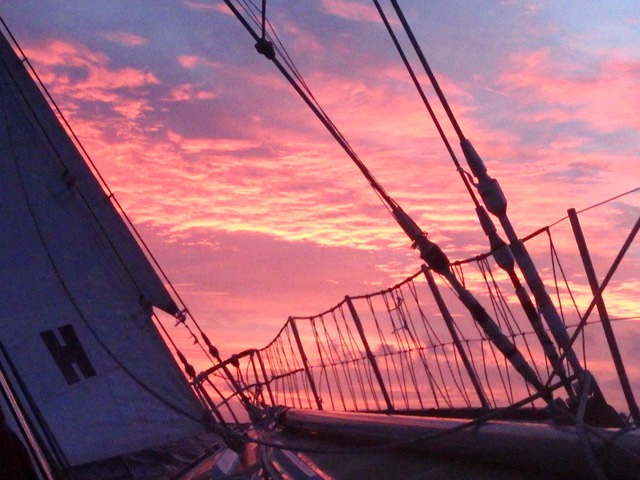 Woken by jerking bunks
Woken by jerking bunks
And renewed gush of our hull homesong
We exchange thick, saturated air
For the warm rush of doldrum wind.
Cradling two pale stars between mast and shroud
I nurse the tilting of our sail,
Head lifted to the masthead
Wind on throat and cheek,
Gentle roar in my ear,
We surge.
Foam rushes on our beam,
Welling gush behind
Responding to each gust.
Our limp, hopeless hours of tortured daylight fade,
Futile tacks forgiven,
Memories of sweat coursing down temple and back
Evaporate in the dry caress.
A breathing splash!
Two dolphins grab a slice of air
And plaits of phosphorescence
Streak to our bows.
We heel, rush, star led. . .
Blessed.
Edward Gildea
Eco team leader
From St Mary's Parish News - April 2020
Is it already too late?
For someone living on the banks of the River Severn, who has been flooded several times and can no longer get insurance; for an Australian whose home has been burned down and for the 80 million animals who died in the fires; for the farmers of Kenya or the Sudan whose crops have failed and whose cattle have died…. it is already too late.
Maybe when people ask that question, they are asking from a perspective in which relative wealth, privilege and education will provide some sort of buffer against the crisis. The climate emergency will affect the poorest nations most profoundly first. That’s what made the Australian fires so shocking: a wealthy, developed nation was suffering the impact of climate change and was powerless to stop it.
The Climate Emergency is not a hypothetical future; it is here now. These are the effects of just 1 degree of warming. Imagine how much worse 1.5 or 2 degrees of warming will be, which are the best scenarios.
Is there a moment, though, that might really constitute ‘too late’ for the bulk of humanity? The thing to watch is sea level. We know that glaciers and ice shelves are melting fast. The Thwaites glacier alone, now melting at an alarming rate, would raise sea levels by 0.5 metres, but is holding back other glaciers of the western Antarctic ice sheet that could raise sea levels by 3 meters.
Vast cities such as Mumbai, Kolkata (Calcutta), Shenzen, Shanghai, Osaka, Bankok Alexandria and Rio de Janiero are some of the most vulnerable to sea level rise, which will result in massive migration movements and political destabilization. I think that is when the real ‘too late’ scenario kicks in…
As I write, though, the news has just flashed on my screen that the third runway at Heathrow has been deemed illegal because the Climate Emergency and Paris Agreement were not considered. This may be the precedent that means that the climate, public health and our survival on this planet are beginning to take precedence over business interests.
And we can be proud of our UDC councilors who did it first!
We can also be proud that the Church of England has brought forward its target for carbon neutralty from 2045 to 2030. Proposing the amendment, Canon Professor Martin Gainsborough, said, ‘The seriousness of the situation facing the earth cannot be overstated, especially across the world, away from the UK. There are theological reasons for the move as well. Christianity is about sacrificial life: Faith is risky.’
So, yes, we are already suffering the effects, but it is surely our duty not to give up hope and not to be inactive. We have still time to limit the worst effects. As Christians, parents, voters, consumers and caring human beings, we must add our weight and influence in confronting the greatest challenge of our age.
You can read the Church Times report on the decision to go carbon neutral by 2030 here:
https://www.churchtimes.co.uk/articles/2020/14-february/news/uk/ten-years-to-be-net-zero-after-synod-rips-up-original-target
Questions for future articles:
What about China?
What about Trump?
Isn’t the problem over-population?
Aren’t I too insignificant to make a difference?
Do we need to change the economic system?
Can we afford it?
How much will I have to change my lifestyle?
Will taxes have to go up?
From St Mary's Parish News - March 2020
It is time to take sides.
It was clear at Davos last month that there could be no more sitting on the fence; it is time to take sides. We can side with Donald Trump, who urged us to ‘reject the perennial prophets of doom and their predictions of apocalypse’ and claimed that it is ‘a growing and vibrant economy which lifts the human spirit.’
Or we can side with the young woman who beat the president to receiving Time Magazine’s Person of the Year Award: Greta Thunberg. She told business and political leaders ‘The facts are clear, but they are still too uncomfortable for you to address. You just leave it because you think it’s too depressing and people will give up, but people will not give up. You are the ones who are giving up.’ Is there a middle way? We either cherish and protect God’s wonderful creation for future generations, or we don't. We are either with Trump or with Greta.
On 25th January Uttlesford’s planning committee took sides. They rejected Stansted Airport’s application to expand further, citing climate change and air quality as key considerations. It was a courageous decision, but as one councillor said, ‘Whatever the legal complexities are here, we also have a moral decision to make.’ It may well prove to be a landmark moment nationally, in which company profits were set aside for the health and prospects of current and future generations.
The church is also taking sides. The Church of England’s Environmental Advisory Group has said that all parts of the Church should recognise the Climate Crisis and step up its action to safeguard God’s creation. They have recommended a revised carbon reduction target of net zero carbon by 2045, with an interim target of 57% reduction by 2030. That’s quite a challenge for large, historic buildings like ours! In addition, the Church’s national investing bodies have already divested from companies deriving more than 10 per cent of their revenues from coal and oil from oil tar sands and are committed to divest further in 2020.
So what should we each do as individuals? Greta is very clear that it is ACTION that is required now, not fine words or posturing. Prayer is a form of action, but it should be prayer that stimulates and inspires further, tangible actions. The Eco church pages on our website include a section entitled ‘What can I do?’ so do read that if you haven’t already. It’s full of suggestions. There are little things you can do, and big things. I suggest that it is now time for each of us to do at least one BIG THING!
Edward Gildea,
Eco team leader
From St Mary's Parish News - February 2020
Time for an ECO Resolution
Did you make a New Year’s resolution this year? And have you managed to keep it? How about making a resolution for the whole of the Twenties decade? One that will make all the difference to future generations? The UN published an Emissions Gap report in December, saying that Greenhouse Gas Emissions (GHGs) needed to fall by 7.6% every year if we are to have a chance of keeping warming to 1.5 degrees. Since we have already seen the horrific consequences of 1 degree of warming, how about we each make a New Decade Resolution to reduce our personal GHG emissions by 7.6% each year until 2030?
The urgency of the situation could not be more apparent. I imagine many of you, like me, have been receiving emails and messages from friends and family in Australia, who are traumatised by the massive and on-going fires in Australia. The messages are heartbreaking and the fears for their homes, health and futures on that continent are real….as is their anger at the lack of leadership from their prime minister. We could not have been given a clearer message of the future we are creating for ourselves if we don’t move on from our carbon based lifestyles.
However, the COP 25 In Madrid ended in deadlock, with politicians unable to unite behind any binding resolutions or targets. A Christian Aid report calculated that there were at least 15 climate related catastrophes that each resulted in over $1 billion in damage, let alone the lives lost. I imagine the Australian fires will dramatically inflate that estimate.
Most tellingly for me, on Greta Thunberg’s edition of Radio 4’s Today programme, the Gas and New Energies Director for Shell, who are spending just $2 billion on research into renewable energy, while they are spending $25 billion in developing new oil production, said that the solution was up to the customer. Until we, as customers, demand more clean energy and less fossil fuel energy, Shell will continue to produce the oil and gas to satisfy our needs: that’s how the market works.
So it really is up to us. Up to us not to think we don’t count; not to freeze like rabbits caught in headlights; not to wait for anyone else to take the lead.As Christians we should be in the vanguard.
So what can you do? Your ECO team have set up a series of pages on the St Mary’s Church website (click on ‘Other’ then on ‘ECO Church’) and scroll down to the ‘What can I do?’ option. You’ll find plenty of ideas there to get you started. If you click on ‘footprintr.me’ link in that section you will be able to calculate your own carbon footprint. In a year’s time, do it again and see if you’ve make your contribution to the 7.6% reduction that humanity needs. Get started on the small things by all means, but it is clearly time now to do the big stuff. Good luck!
Edward Gildea
From St Mary's Parish News - December 2019-January 2020
If only we could have a garden of Eden
It is good to know leading professionals from more than 70 wildlife organisations have joined with government agencies for the first time, to present the clearest picture to date of the status of our species across land and sea. Churches are realising that their grounds can become sustainable wildlife habitats and St Mary's has taken the first step in agreement with the town council to ensure no chemicals are used on site and to start a mowing regime in a trial area to create a wildflower meadow. The eco-team are hoping to start planting; increasing the number of flowers in existing beds, planting wild flowers seeds and plant plugs to attract pollinators to increase biodiversity.
The UK’s wildlife continues to decline according to the new State of Nature Report 2019. The latest findings show that since rigorous scientific monitoring began in the 1970s, 41% of UK species studied have declined. 133 species assessed have already been lost since Tudor times. Butterfly decline is 17% and moths 25% . The numbers of species that require more specialised habitats have declined by more than three quarters. As God knows ‘every flower in the meadow and bird in the sky’ he cares for each and every living thing then so should we.
The UK’s mammals also fare badly with greater than 26% of species at risk of disappearing altogether. At St Mary's we plan to create small log piles, hedgehog homes and a bug hotel in discreet corner to encourage mammals and amphibians.
Much is known about the causes of decline and about some of the ways in which we could reduce impacts and help struggling species. The evidence from the last 50 years shows that significant and ongoing changes in the way we manage our land for agriculture and the ongoing effects of climate change are having the biggest impacts on nature. Both nationally and locally we need to alter the way we treat the natural world.
Daniel Hayhow, lead author on the report, said: “We know more about the UK’s wildlife than any other country on the planet, and what it is telling us should make us sit up and listen. We need to respond more urgently across the board if we are to put nature back where it belongs. Governments, conservation groups and individuals must continue to work together to help restore our land and sea for wildlife and people in a way that is both ambitious and inspiring for future generations”. Bishop Stephen’s letter to Essex churches supports this view when he stated it is our duty to play our part. God’s wonderful world needs our help and prayers, fortunately people’s attitudes towards valuing nature means there are positive steps forward.
Jackie Damary-Homan (Eco group)
From St Mary's Parish News - October 2019
Eco Church - Our New Perspective
We have just celebrated the remarkable and heroic journey of the astronauts who landed on the moon fifty years ago. Just a few months before that, Apollo 8 had taken the first humans out of Earth orbit and around the moon. As they re-emerged from the far side of the moon, after the agonizing moments when communication with Earth was impossible, they saw, for the first time, the amazing phenomenon of ‘Earth Rise’. Our small, exquisitely beautiful globe of green, blue and white, rising above the surface of the moon. No wonder the astronauts read the first verses of Genesis to an awe-struck Earth on that Christmas Eve orbiting the moon!
This was the image that gave us the chance to see the world and ourselves from a new and powerful perspective: small, delicate, self-contained, in balance with the universe.
Sailing around the world, I felt a similar perspective: that however vast and frightening the oceans sometimes seemed, the world is actually very small; and however powerful and dangerous the winds and waves, our climate is very delicately balanced.
It is also full of abundant, natural, clean energy. Sailing towards the Fastnet Rock this summer in a Force 7 gale, I am sure I had all the power at my fingertips on the helm of a F1 racing driver! It was thrilling!
Yet for all these perspectives, we are still treating our world as if it were an infinite sewer. We pour toxins and CO2 into the air, as if the atmosphere can dispose of them freely on our behalf, and we pour plastics and pollutants into our rivers and oceans as if they are infinitely able to neutralize them without nature being harmed.
Some how we have not made the link between our behaviours, consumption and lifestyles and the consequences these have on our small and delicate planetary vessel. It is time to connect things up. We vote with every purchase we make. Voting to be part of the supply chain that brought us that food, those clothes, that product, that energy, and voting to be part of the chain that recycles, disposes or pollutes after we have used it.
Nothing goes away. The only things that have ever left our planet are some amazing Voyager space craft and the LEM modules still sitting on the moon. Everything else is still with us; with consequences, if not for us, then for our children and grandchildren.
Bishop Stephen’s Letter - Sept 2019
Dear friends in Christ,
Taking action on climate change
Two years ago, when I visited our partner diocese in Kenya, it had not rained for 18 months. Bishop Qampicha drove me across the diocese. We passed dried up rivers where I saw an elephant digging for water with its trunk. I visited villages where the water hole had been empty for months. We went to a reservoir where many people gathered with their animals, but I was told there was only enough water left for another two months. People were travelling vast distances to come to it. Fighting regularly broke out, fuelling anxious and volatile tribal tensions. We came across nomadic people who had abandoned the lifestyle of centuries to settle by the edge of the tarmac road. They showed us the skeletons of their dead animals. They now spent their days by the side of the road waiting for the little aid that was available to fill their containers with water.
A whole way of life is disappearing, and with it, violence is escalating.
Everywhere we went children hailed us as we drove by. At first I thought they were just pleased to see us. Then I saw they were shaking upturned plastic bottles. They knew we had water on board and they were thirsty. Most painful of all, I saw some children drinking water from a stagnant and semi-polluted brook. I dread to think what diseases that water contained. But if you are thirsty you will drink whatever is available.
Kenya used to measure the year by the seasons of short and long rains. But what was once predictable is now erratic. Drought is followed by flood. And uncertainty breeds further uncertainty. A whole region is thirsting.
And it isn’t just Kenya. Our whole world is facing a climate emergency. Our faith tells us the world was created by God and we have responsibility for it. Scientists tell us that we need to make large changes fast to avoid catastrophic threats to the conditions that support life on earth. Images of the fires destroying the Amazon have brought the damage being done to our world into sharp focus. The actions of young people and Greta Thunberg have spoken truth to power and challenged us about our way of living.
Christians across our diocese are engaged in seeking to prayerfully respond to climate change. Our faith invites us to live lives that proclaim that truth.
Please join me in asking God to guide and inspire us to find the courage to live and act differently that we may be good stewards of the earth,
Yours sincerely,
The Rt. Revd Stephen Cottrell Bishop of Chelmsford
From St Mary's Parish News - July/August 2019
My Environmental Dream
Last month the PCC signed up for the journey to become an Eco church. It needs to be a journey that challenges us all.
At a recent conference the speaker, Rupert Read, said, ‘This civilization is over. It will be over in one of two possible ways. Either we make an intelligent transition to a new form of sustainable civilization, in tune with our environment; or we end with an environmental collapse followed by social and economic disasters.’
It is a stark choice and so far, we have made little progress in choosing the right one. Globally, we are still sending more warming gases up into the atmosphere at the rate of 37.1 billion tonnes per year. 2018 was the highest ever.
However, the destination that I dream of is an attractive one. In ten years time all of us will be running our cars on sunshine. Gliding down the roads smoothly and silently, powered by the solar panels on our homes. When a petrol driven car goes by we will wrinkle our noses at the stench and complain with righteous indignation as we do now if someone lights a cigarette indoors.
Our gas boilers will have been replaced by air source or ground source heat pumps. The coziest bathroom I ever luxuriated in was in a Landmark Trust folly, heated by a ground-source heat pump. It was wonderful! Our fuel bills will be massively cheaper and no longer will we be sending billions of dollars to dynastic families in the Middle East to fuel their conflicts.
We will be flying less because rail travel will be so much better and cheaper, with comfortable and romantic night sleepers taking us to our Mediterranean holidays.
And best of all, we will be able to look our children and grandchildren in the eye and feel that we ended up as reasonably good ancestors, bequeathing them a planet that they can enjoy as much as we have.
That is my dream. But we really need another Martin Luther King to inspire us all to realize it.
Meanwhile it is worth doing what we can on three levels:
1. Take personal responsibility: for our carbon footprints, for our use of plastics, for our role in the supply chains of everything we buy: are we supporting ethical, humane, non-polluting companies with our purchases?
2. Act Locally: get involved in local groups and movements to make Saffron Walden as green and sustainable as we can, halting the decline in biodiversity and reducing air pollution.
3. Influence nationally and internationally: we are privileged to life in a democratic country with freedom of speech and association. Let’s put that freedom to good use!
Edward Gildea, Eco Church Team
From St Mary's Parish News June 2019
We’re off!
St Mary’s Church have decided to embark on the journey to become an Eco Church!
Our curate, Rachel Prior says, 'I am delighted that St Mary's is taking seriously the need to cherish and protect God's creation. Through registering to become an Eco Church, we are joining in with many other Christians and churches, who are committed to being good stewards of this beautiful planet. The Church has an opportunity to demonstrate real leadership here and could play a tremendous role in taking us forward.'
The award is structured around five headings, with 20-30 actions attached to each:
-
our worship and teaching
-
our buildings
-
our land
-
our engagement with local and global communities
-
the personal lifestyles and decisions of our congregation
The timing could not be more appropriate. The various UN reports that have been published on Climate Change and loss of Bio-diversity; the recent declarations of Climate Emergency by the Town Council and the UK Parliament; the example of Greta Thunberg; the actions of Extinction Rebellion and the warnings of Sir Richard Attenborough and Mark Carney all tell us that if we don’t act now it will be too late.
‘What excites me about this project is the potential for leadership. The planet is crying out for leadership on this issue; leadership by example and practical action. The Church, in it’s duty to love and cherish God’s creation, could play a tremendous role in taking us forward,’ said Eco team leader, Edward Gildea.
Jackie Damary-Holman will be championing the work to support bio-diversity while Chris Knight will be using his experience to find ways of reducing the carbon footprint of the church.
Rev Rachel Prior will be exploring ways in which the worship and prayer life of the church can be used to inspire us to be more conscious of our impact on future generations in our daily lives and decisions.
But the church really wants to enlist ‘champions’ and ‘activists’ in all aspects of church life so that everyone can play an active part, not just a small, delegated team.
Click on the links below to go to our Eco Church pages: